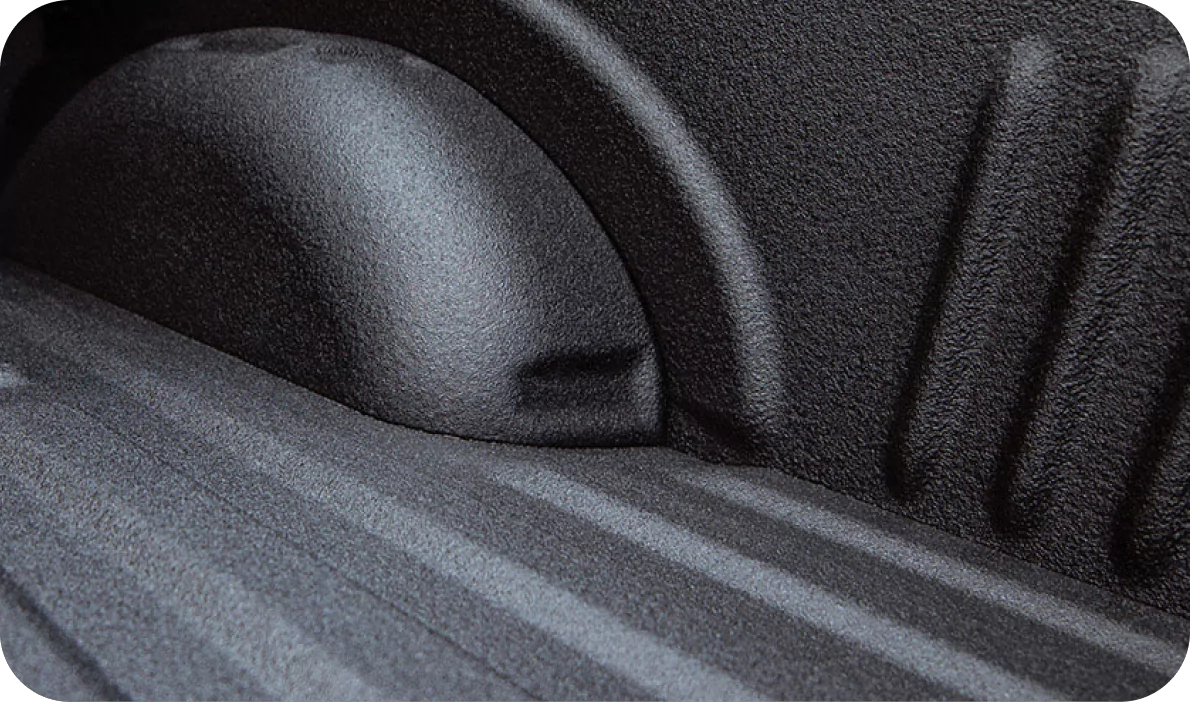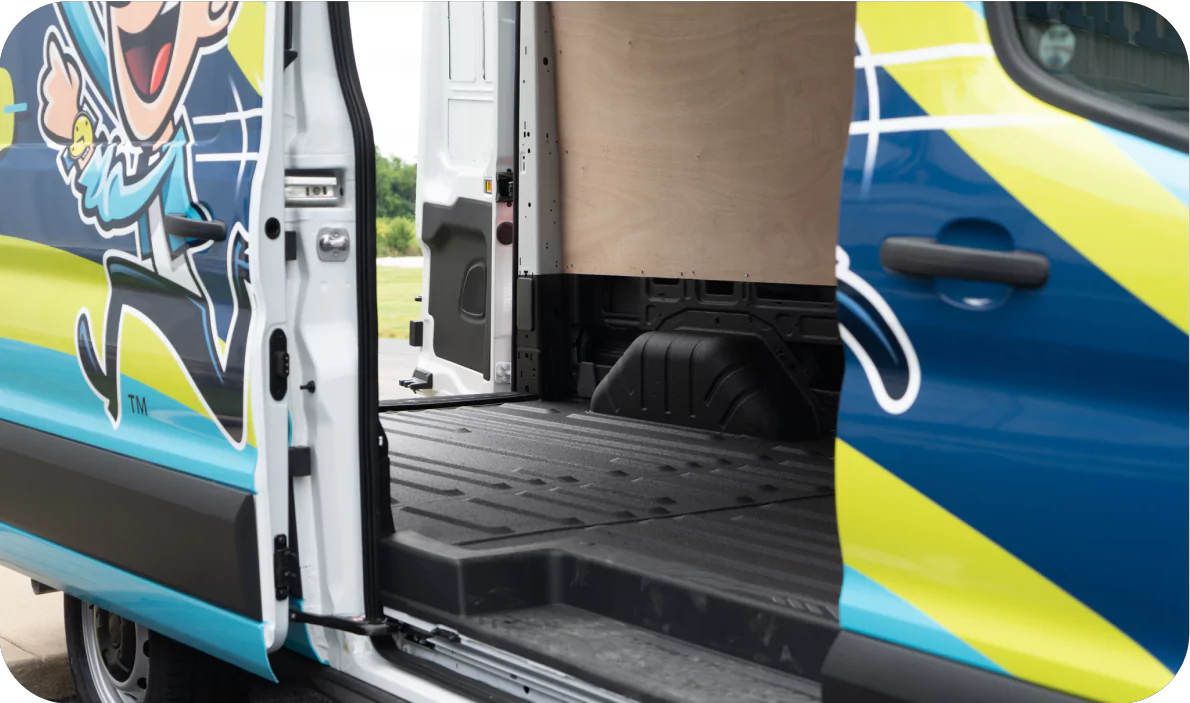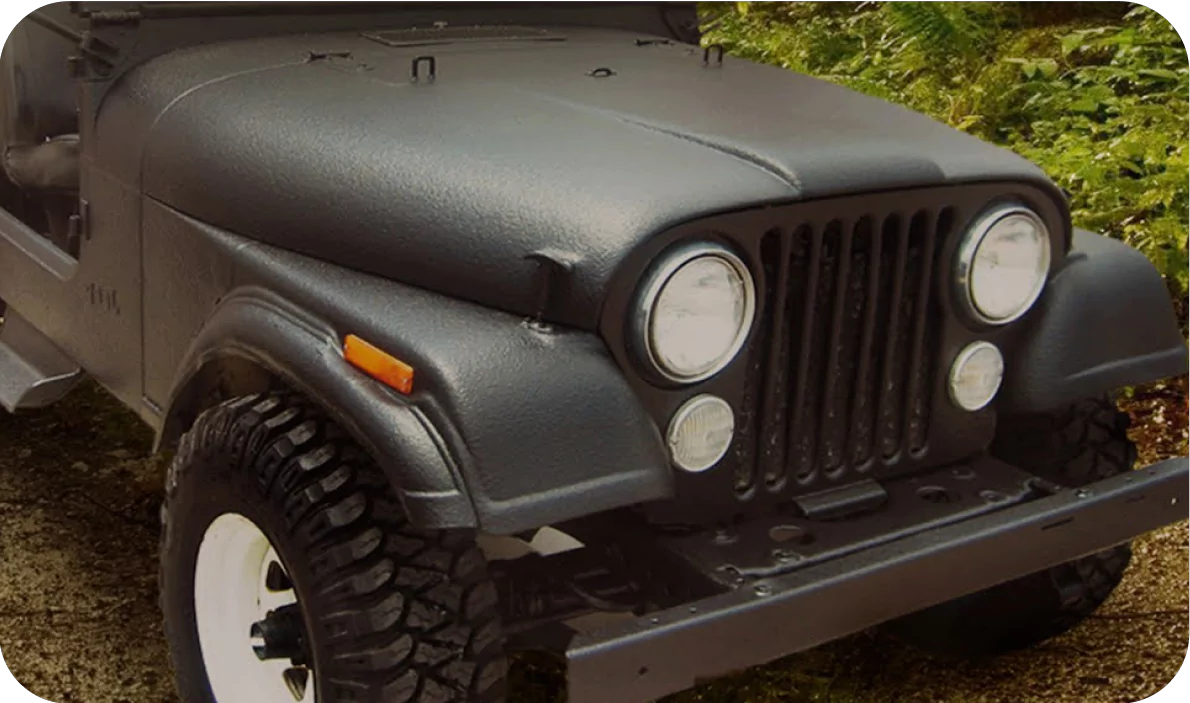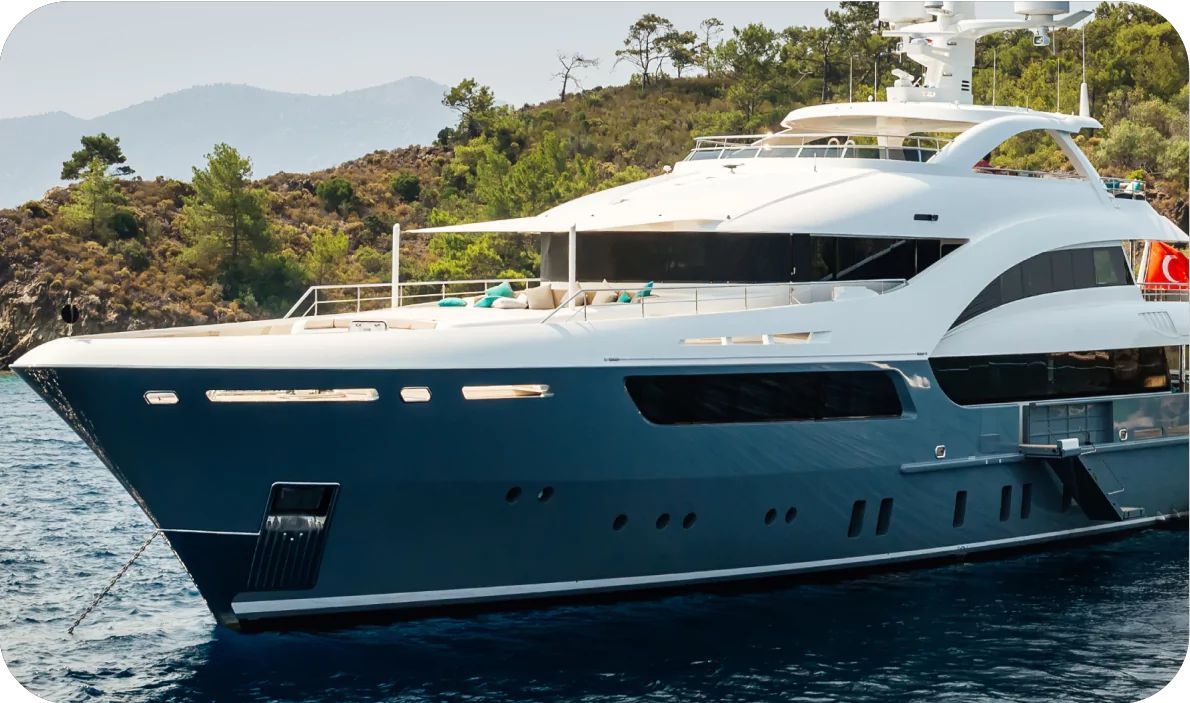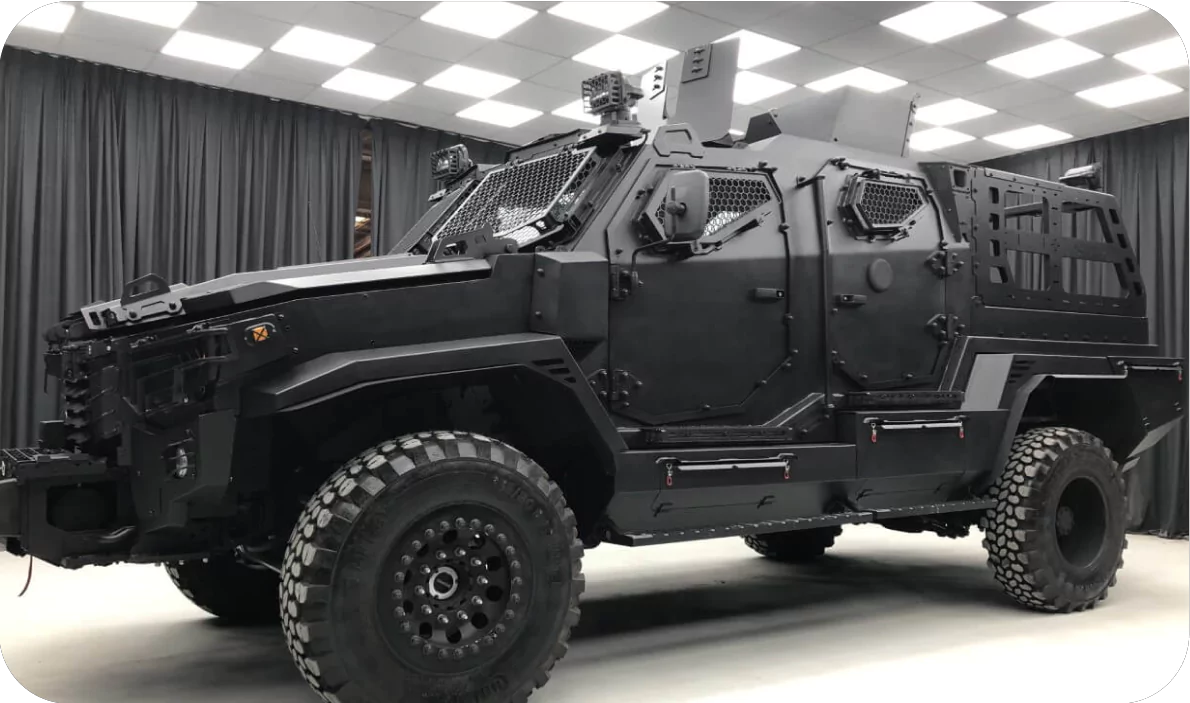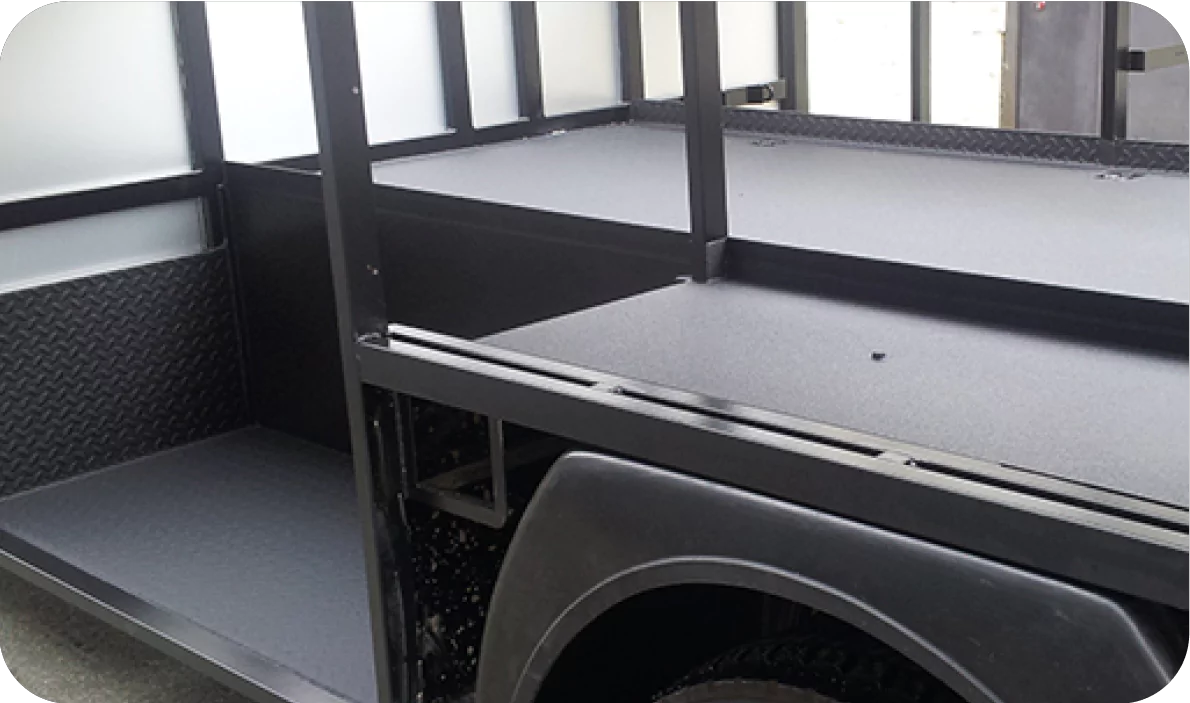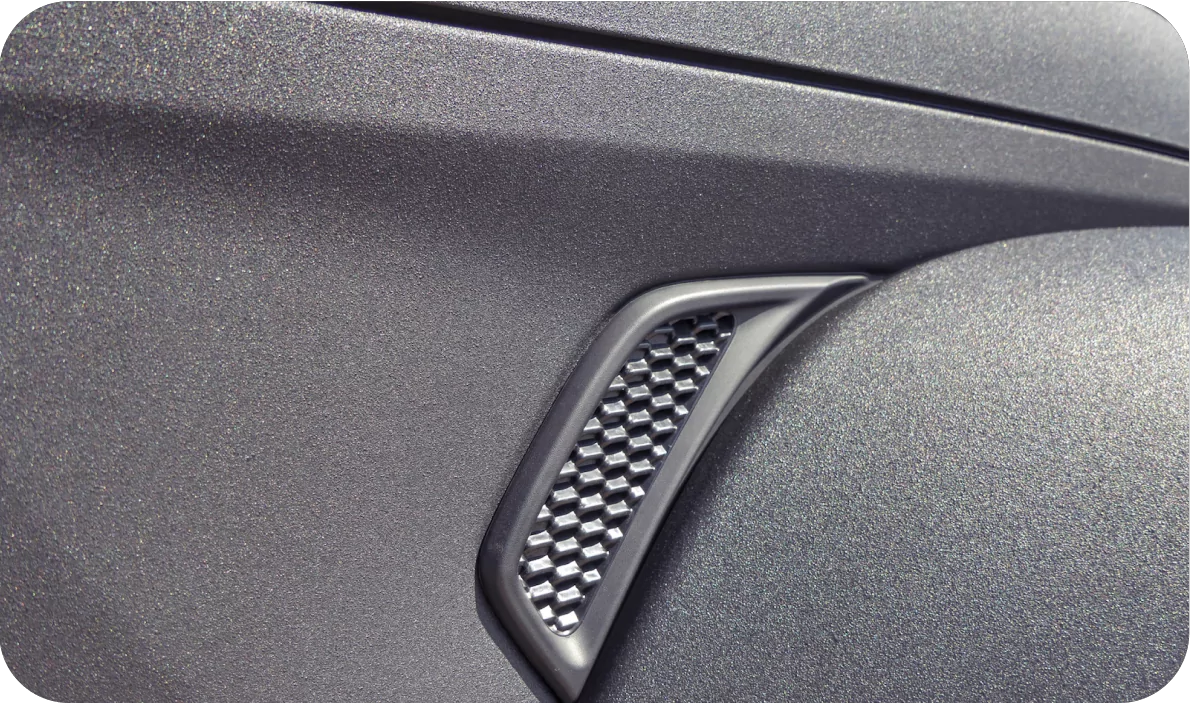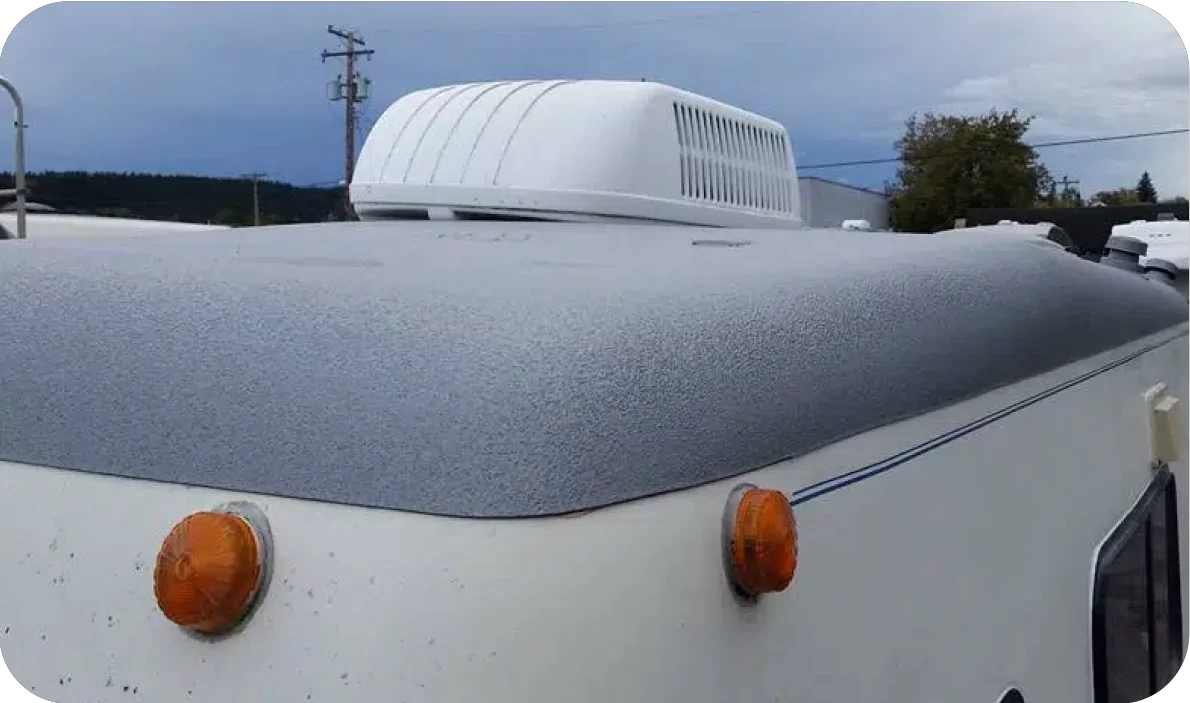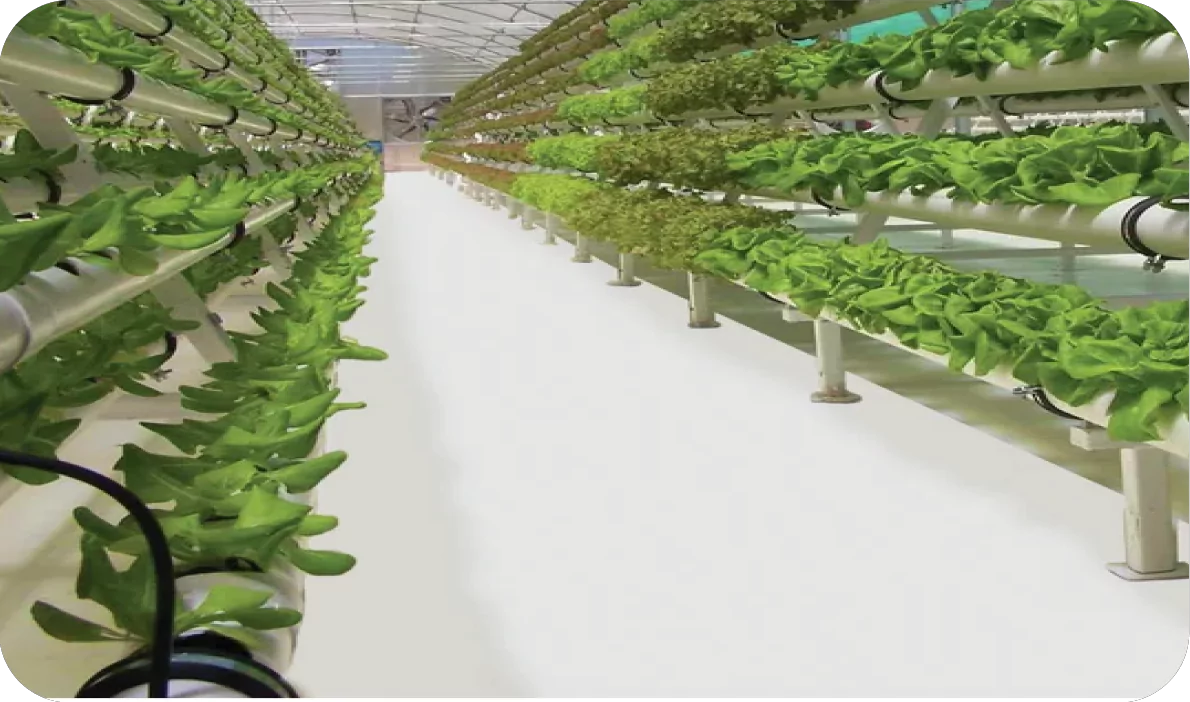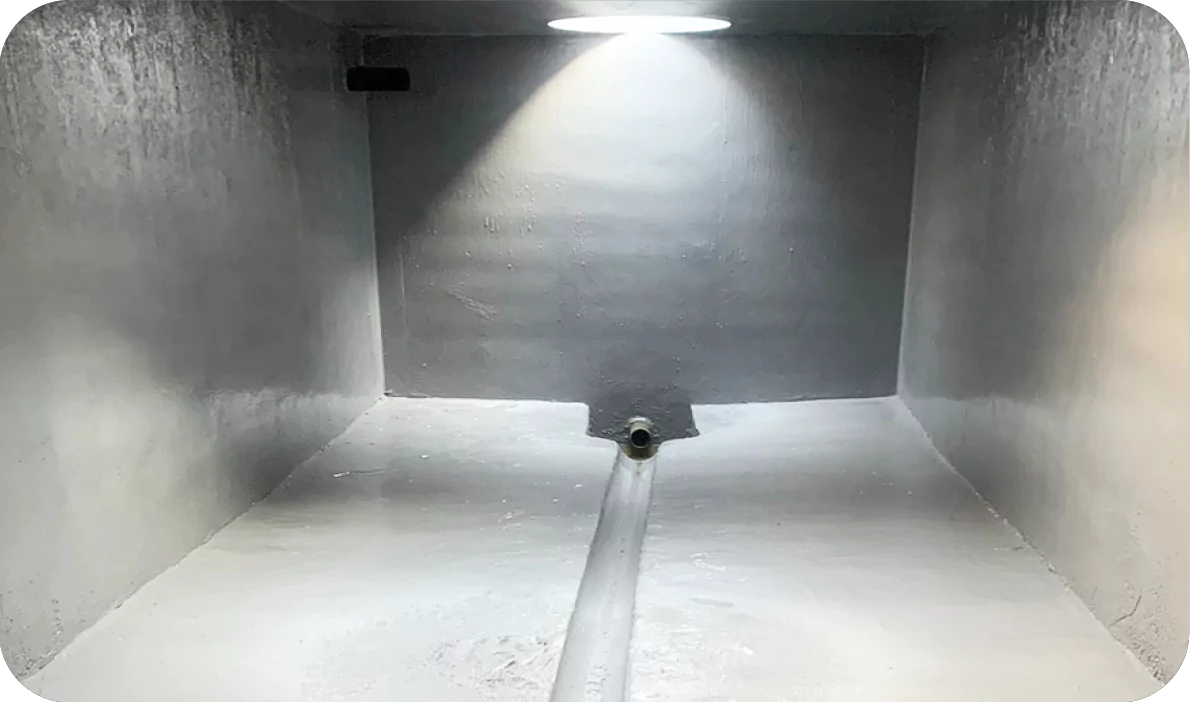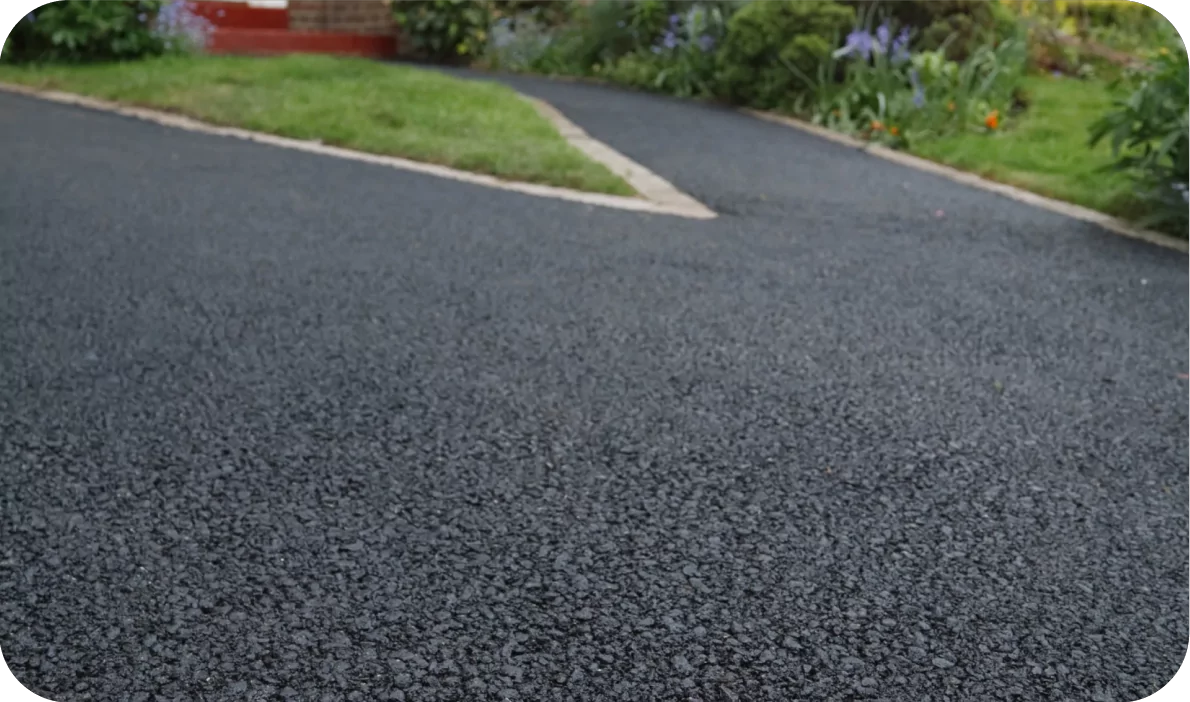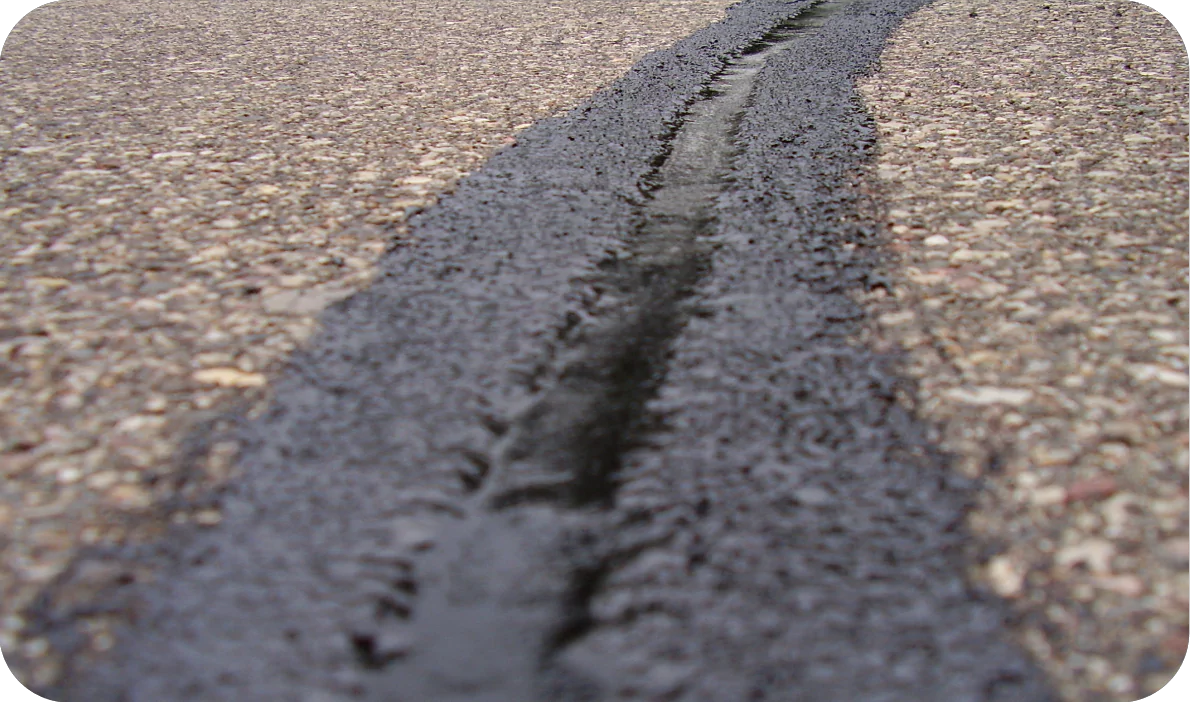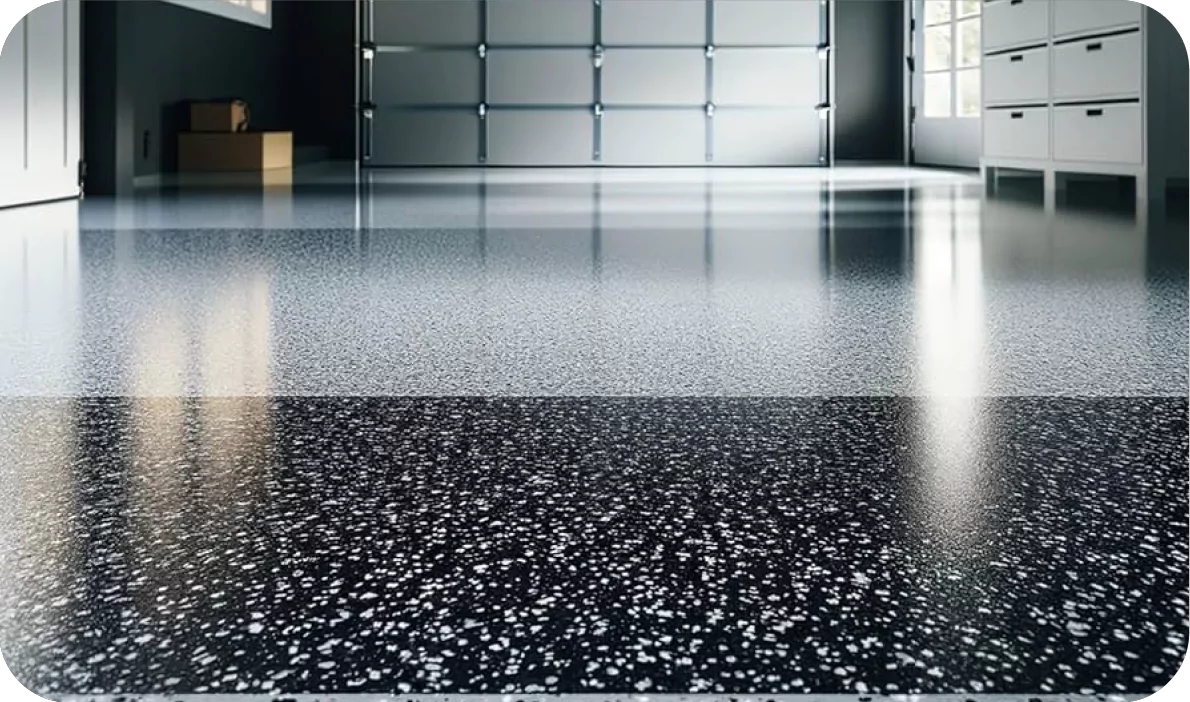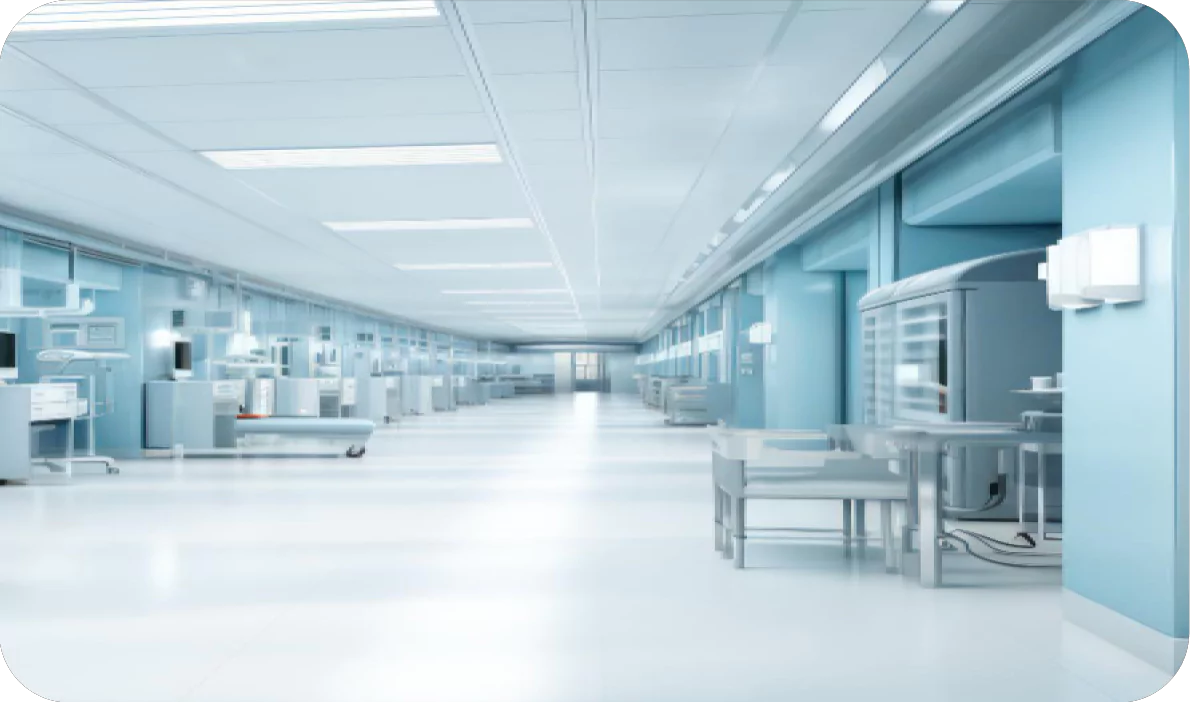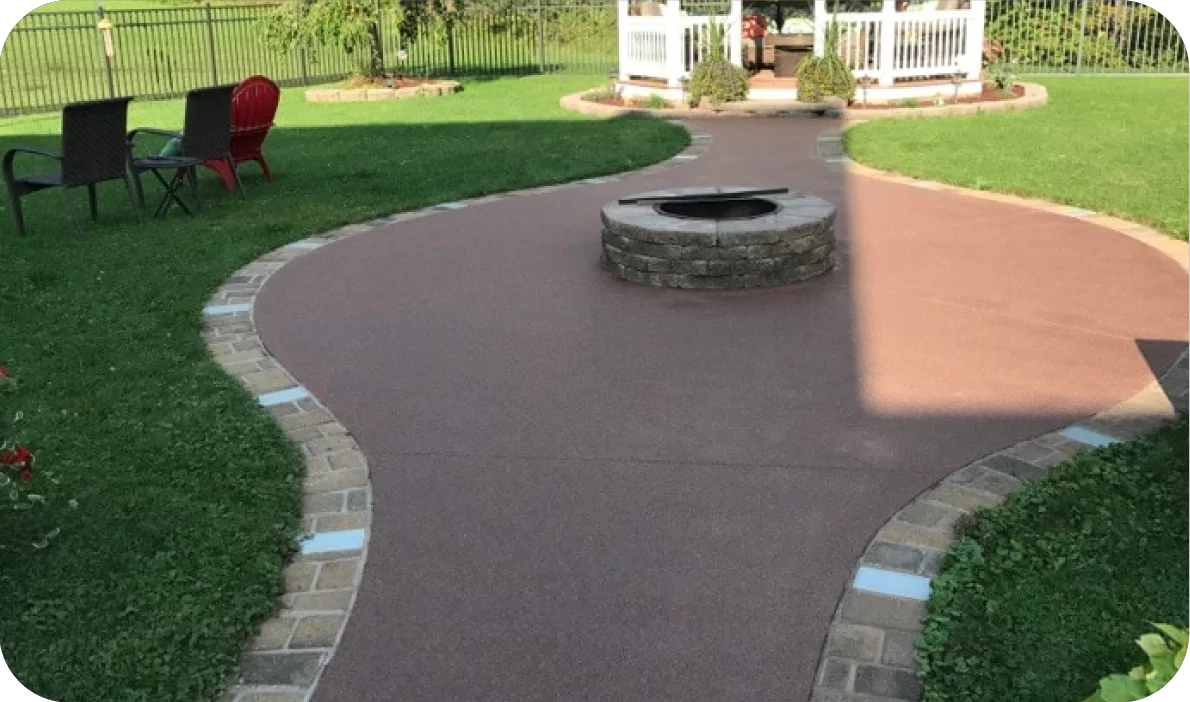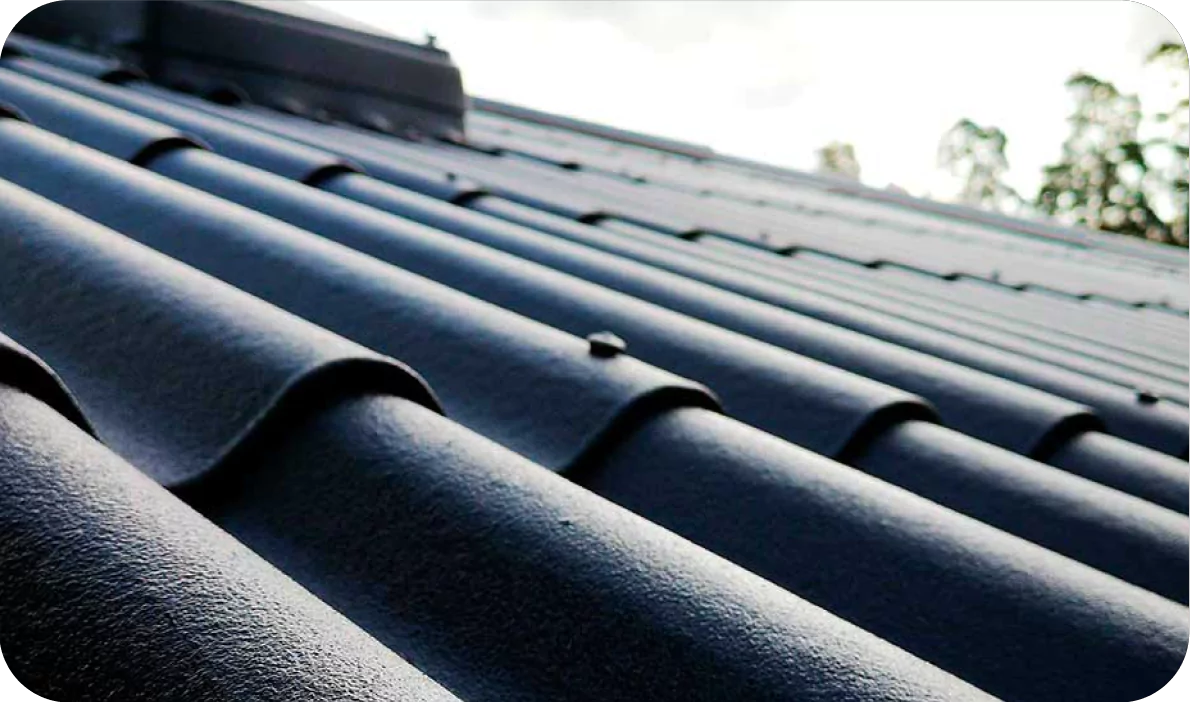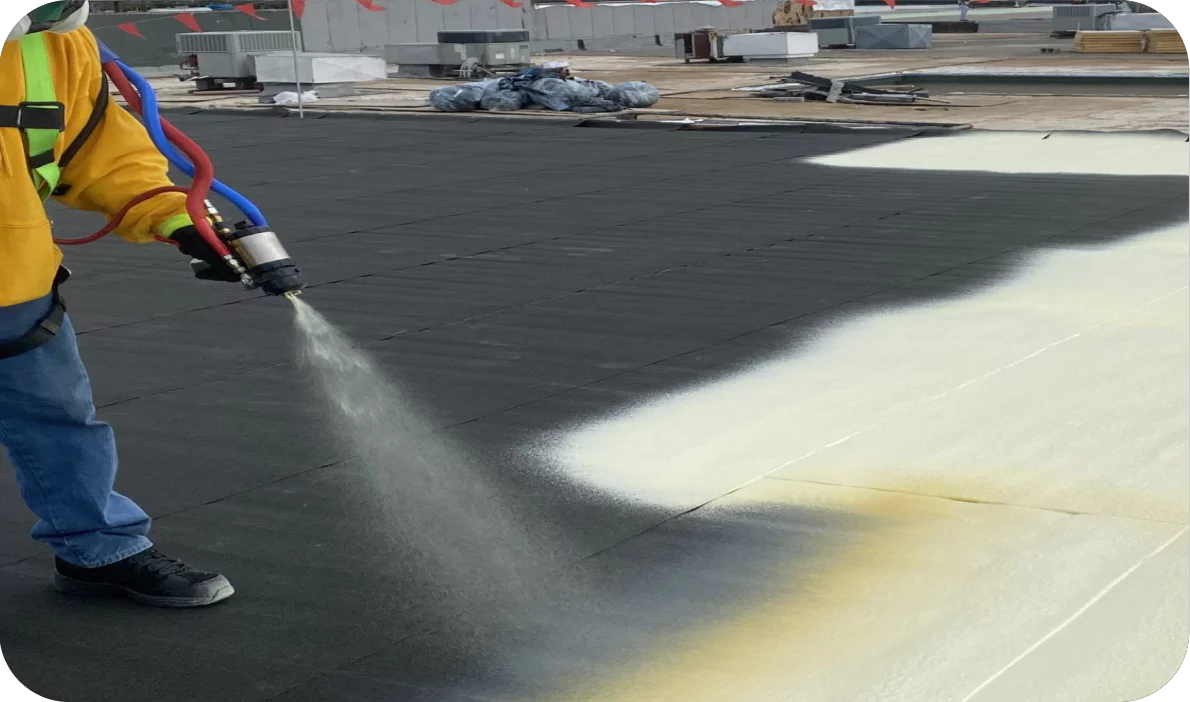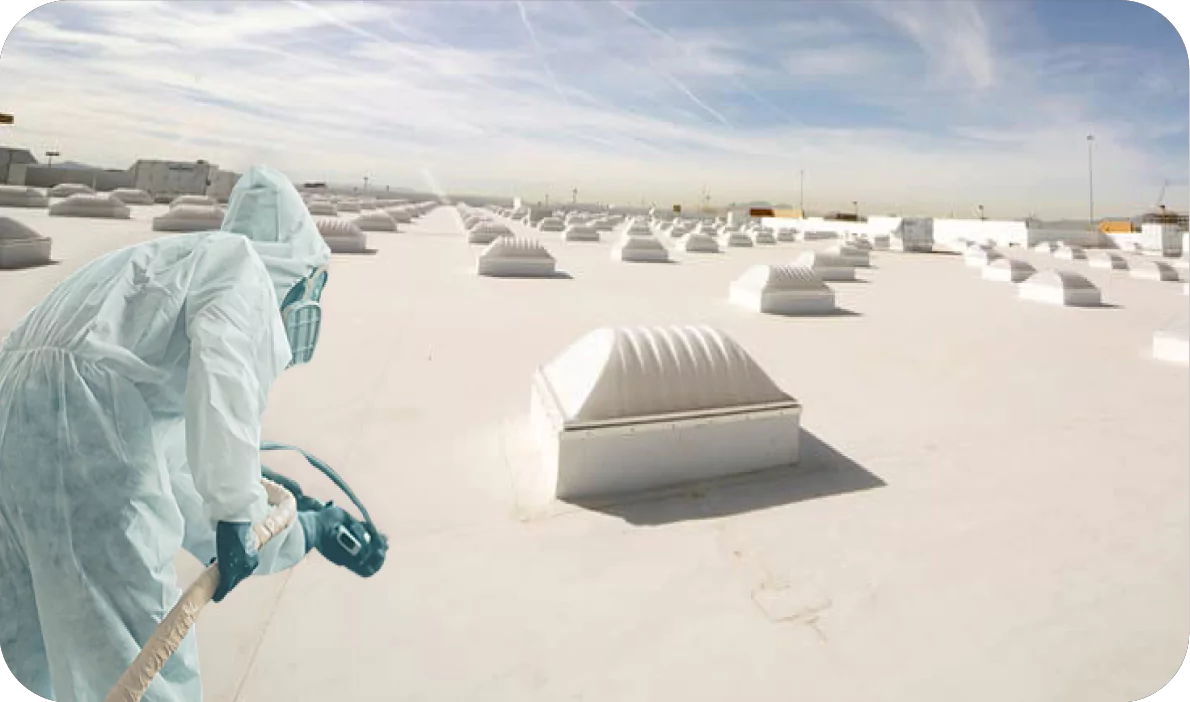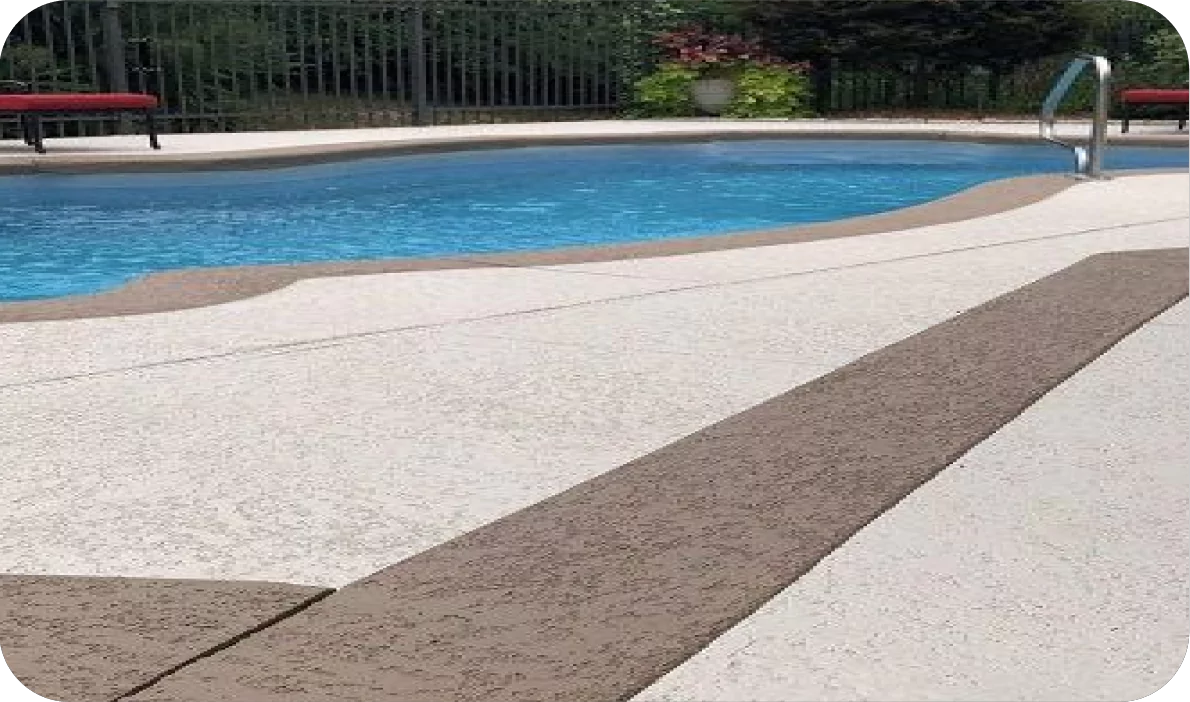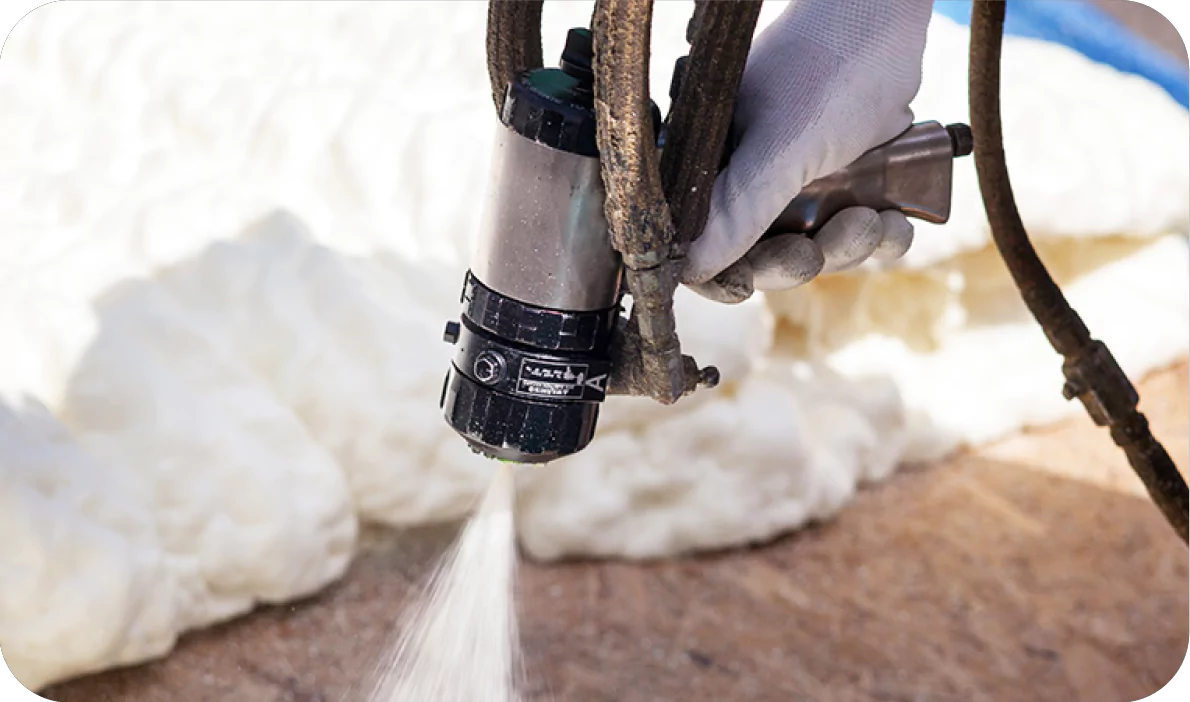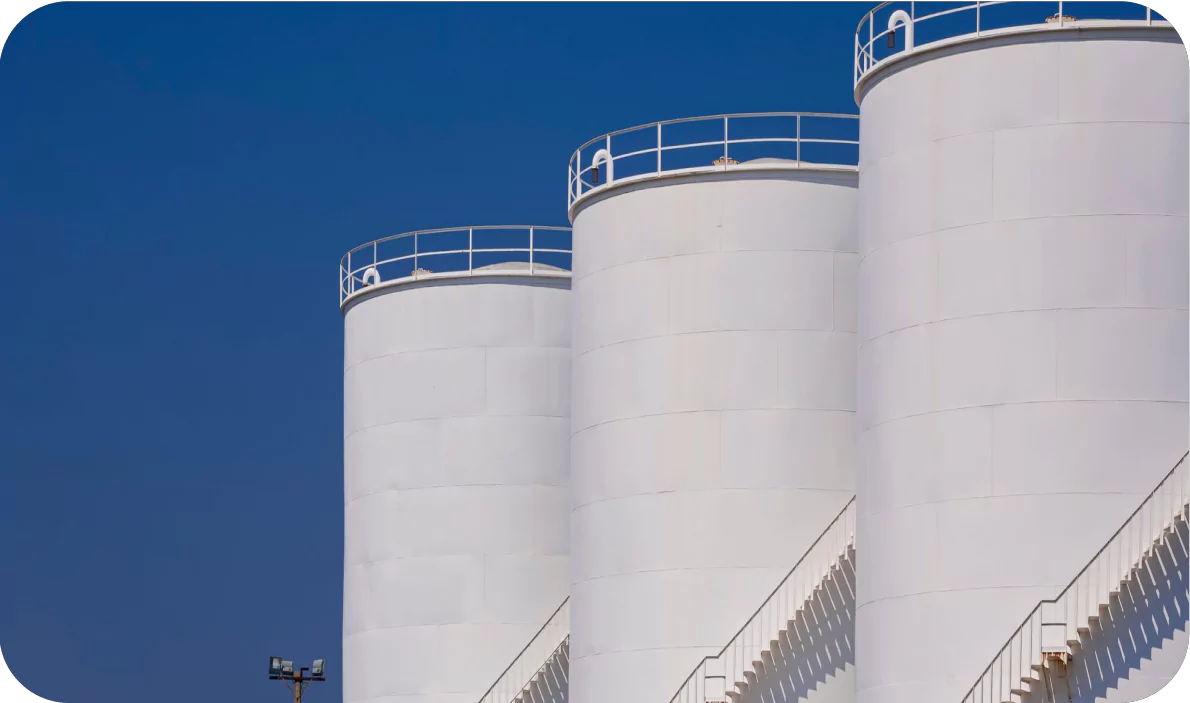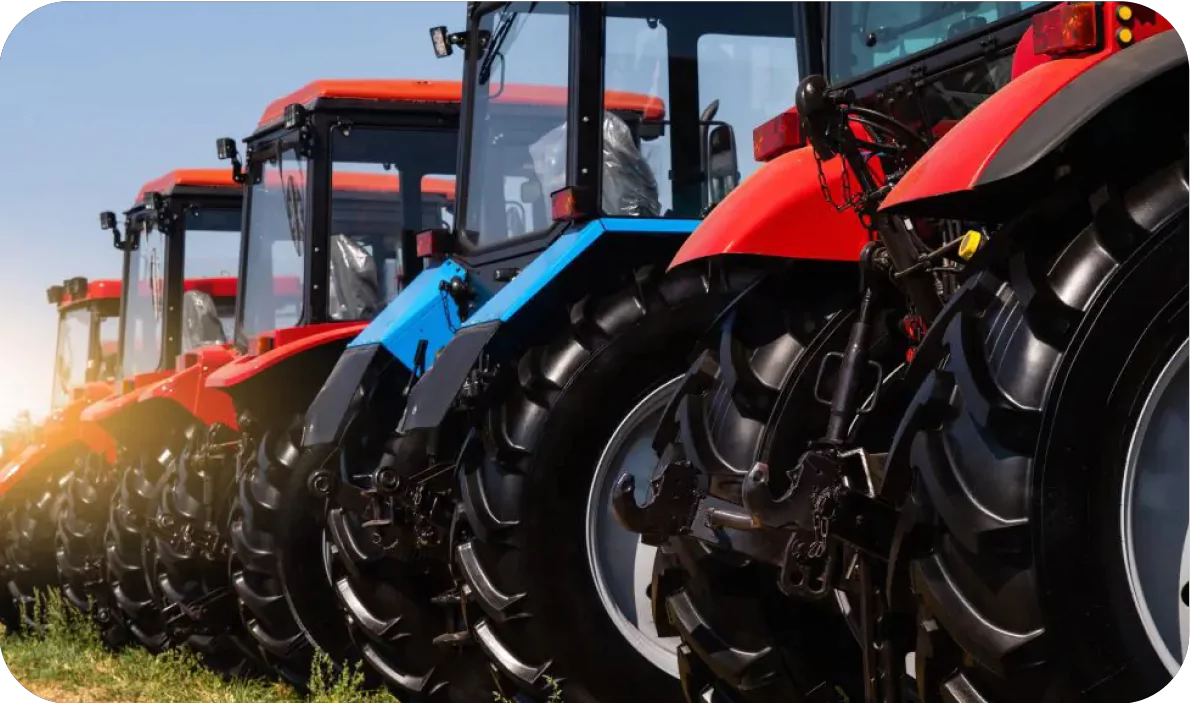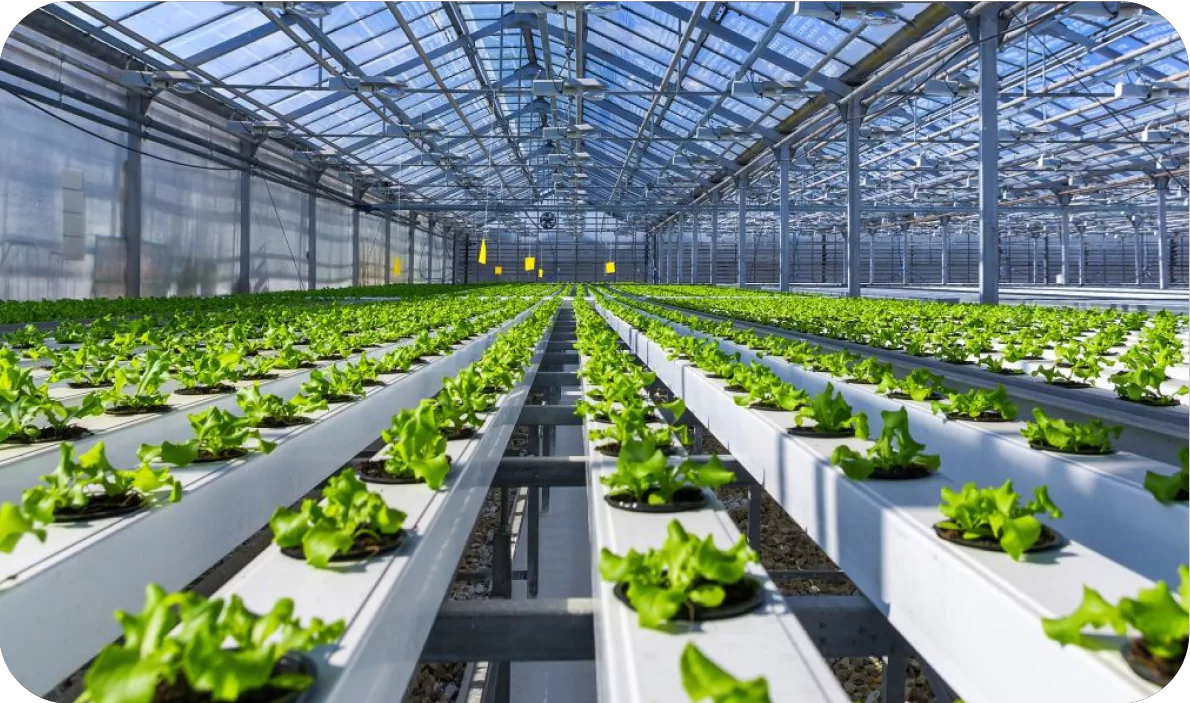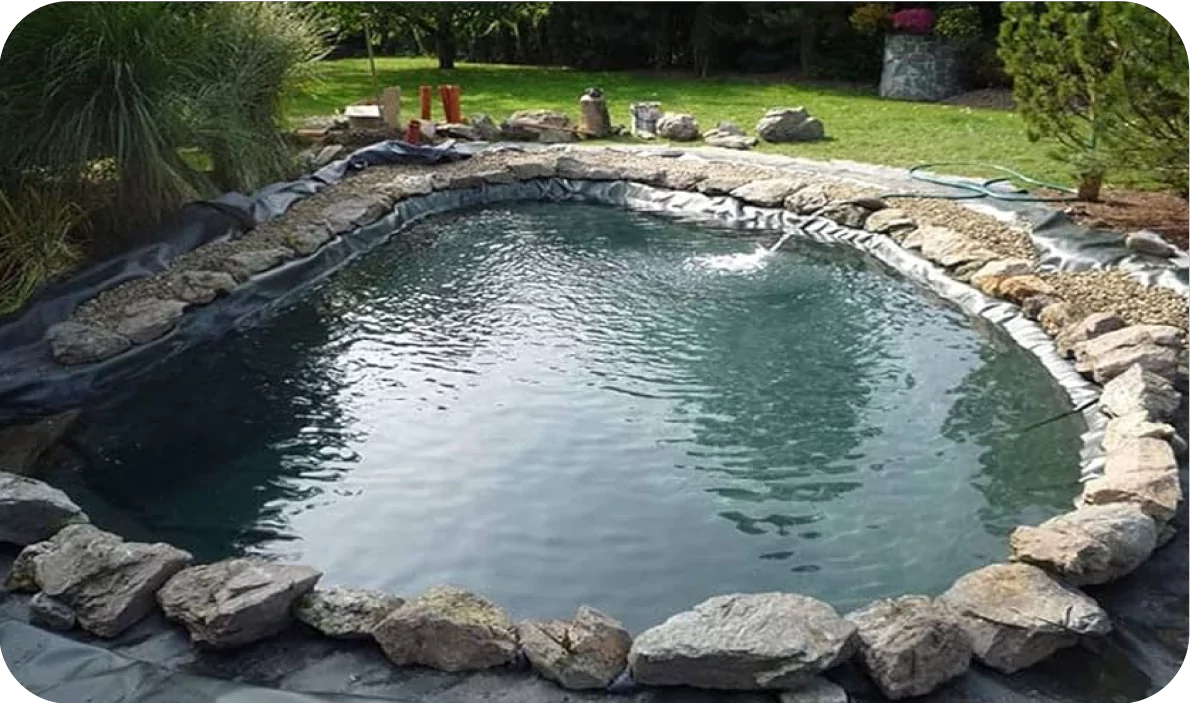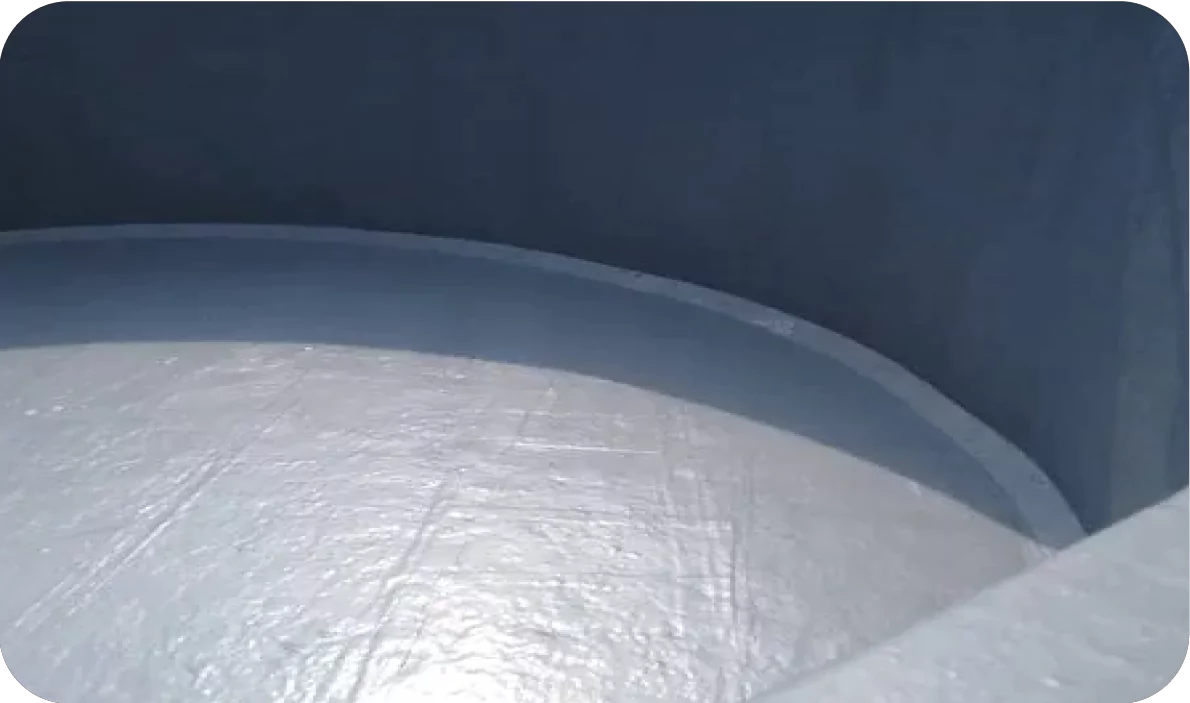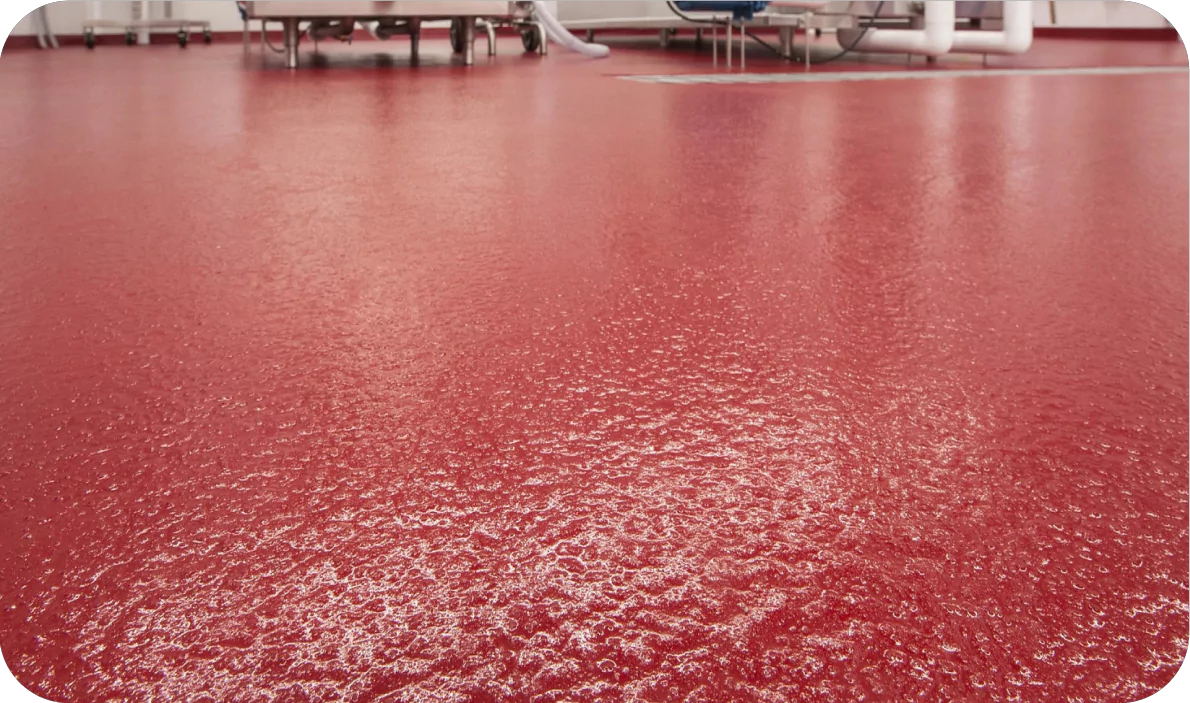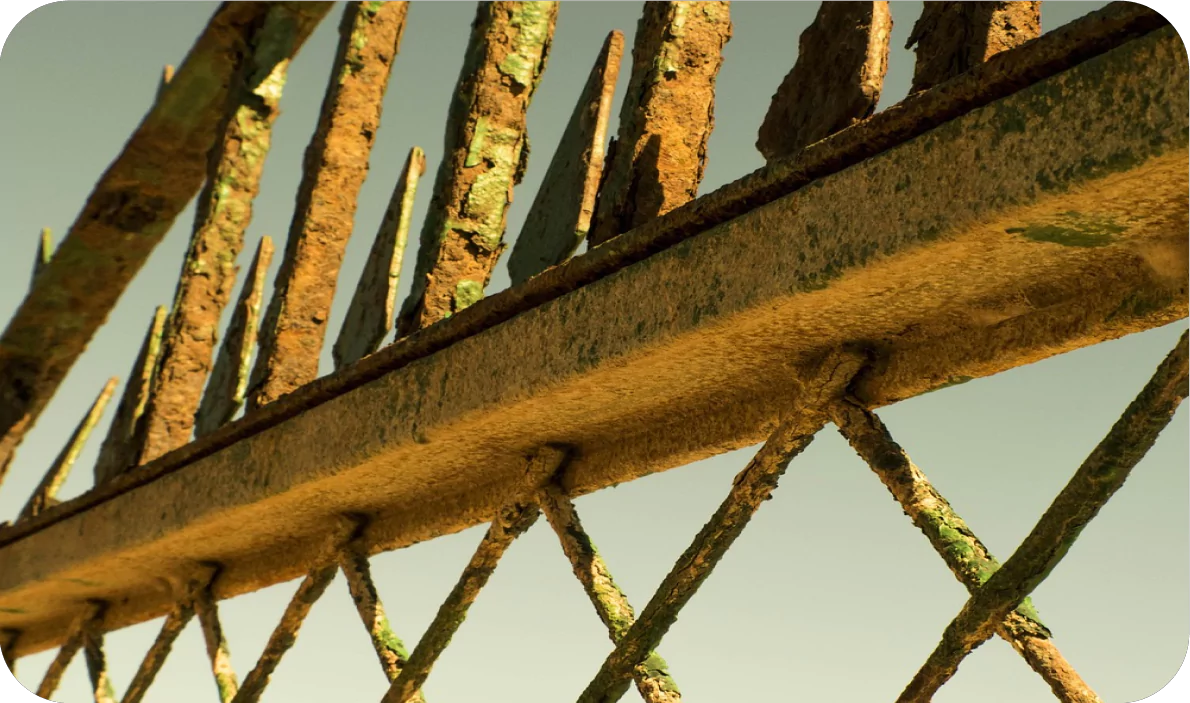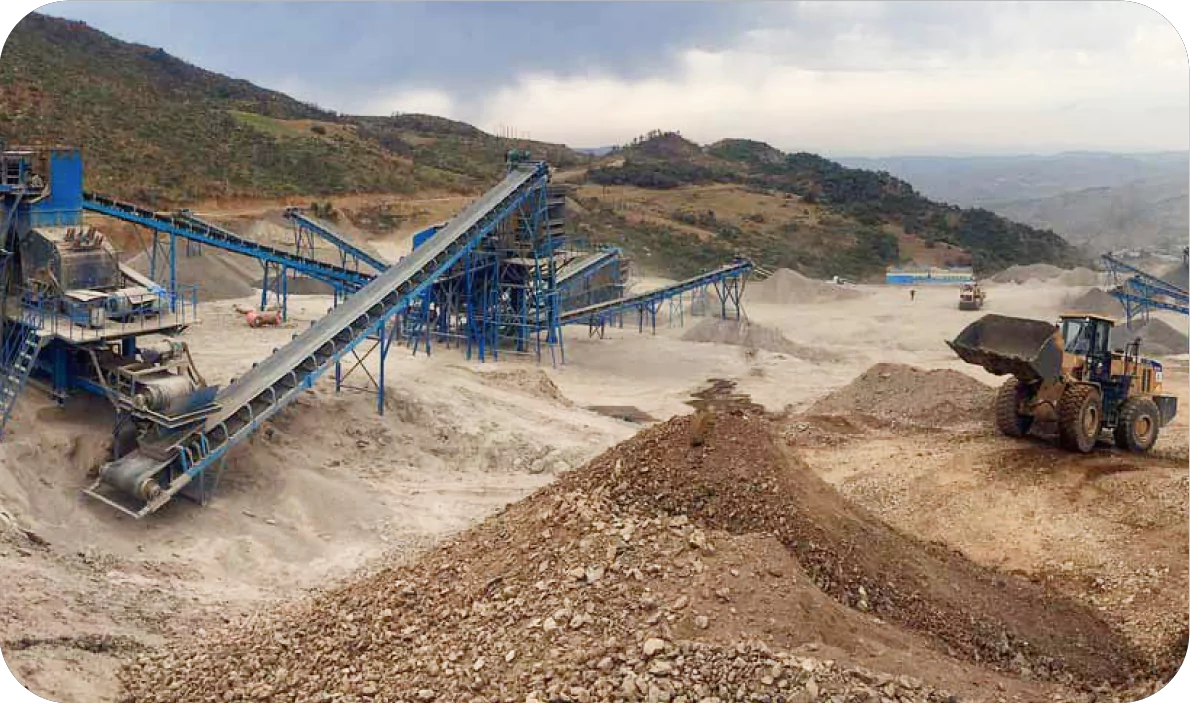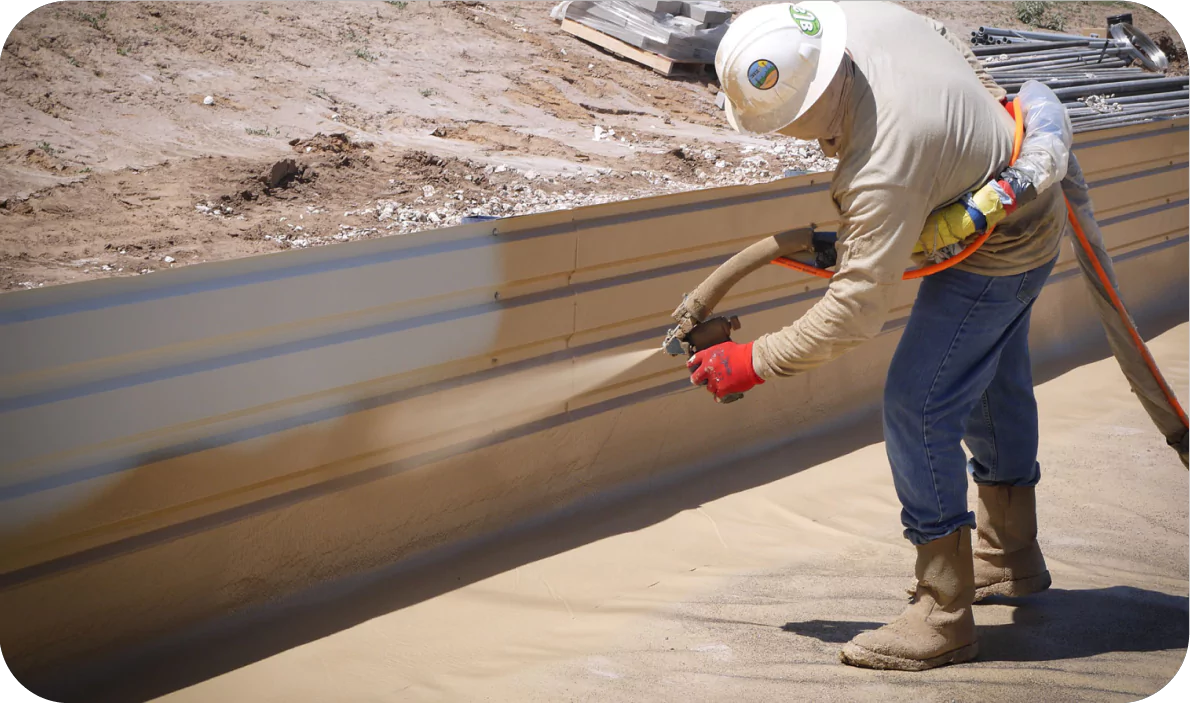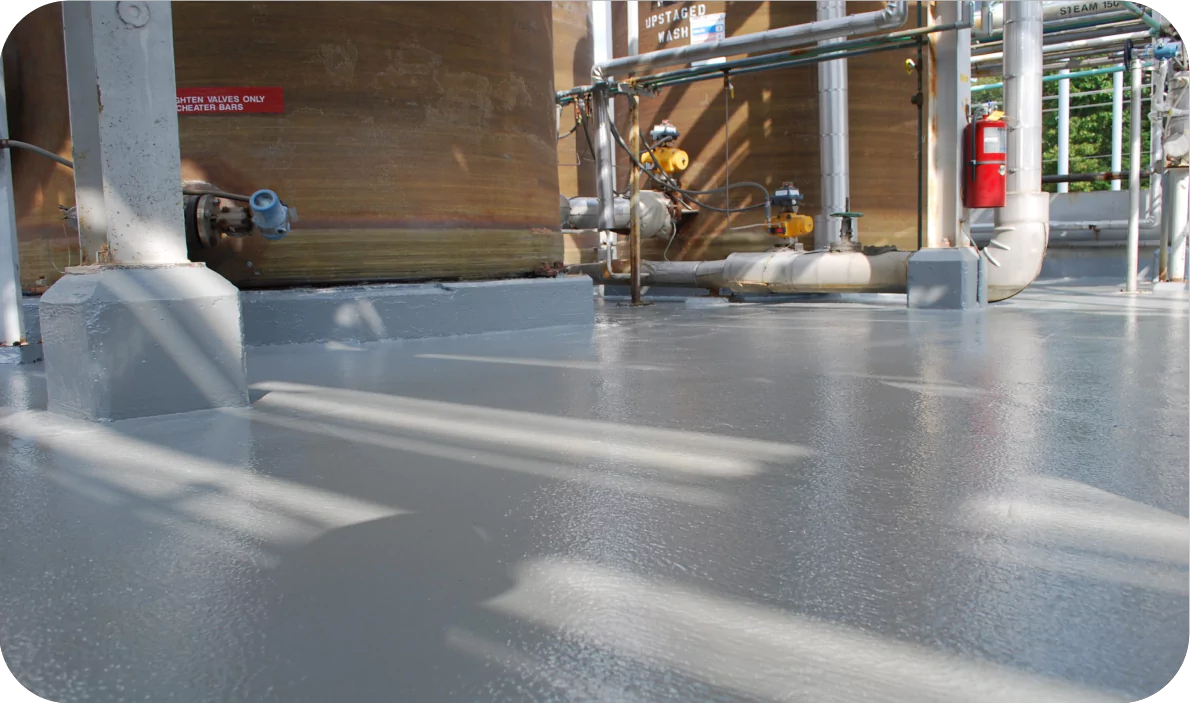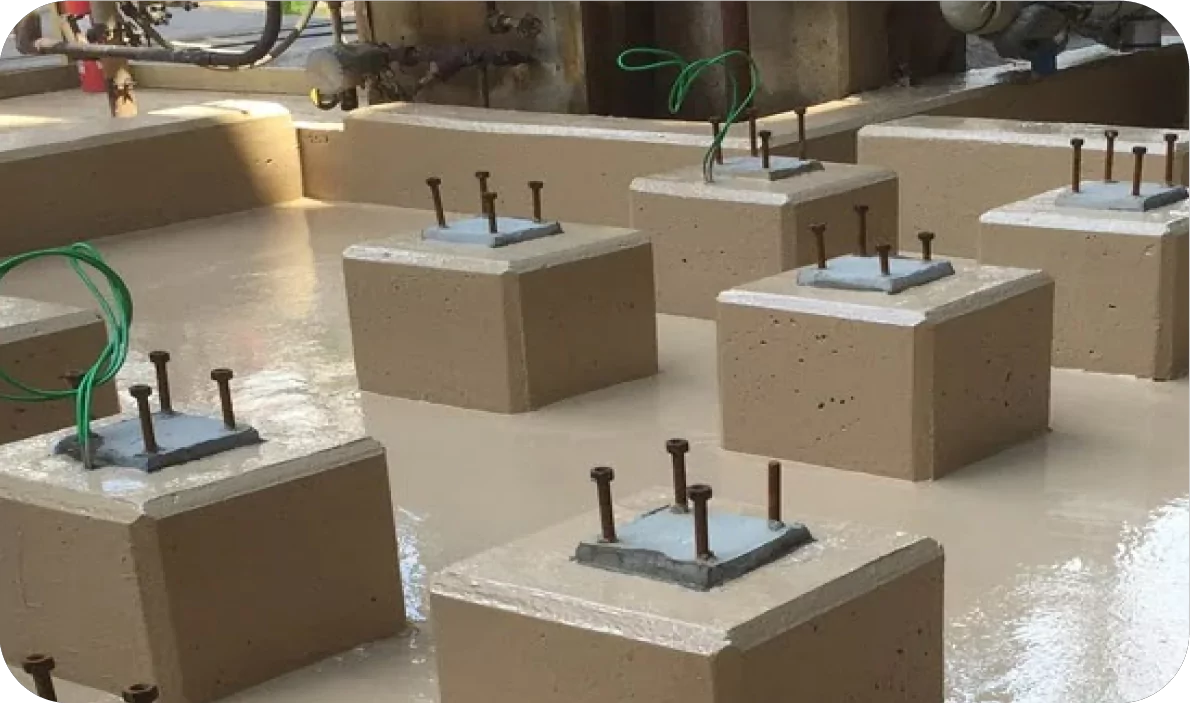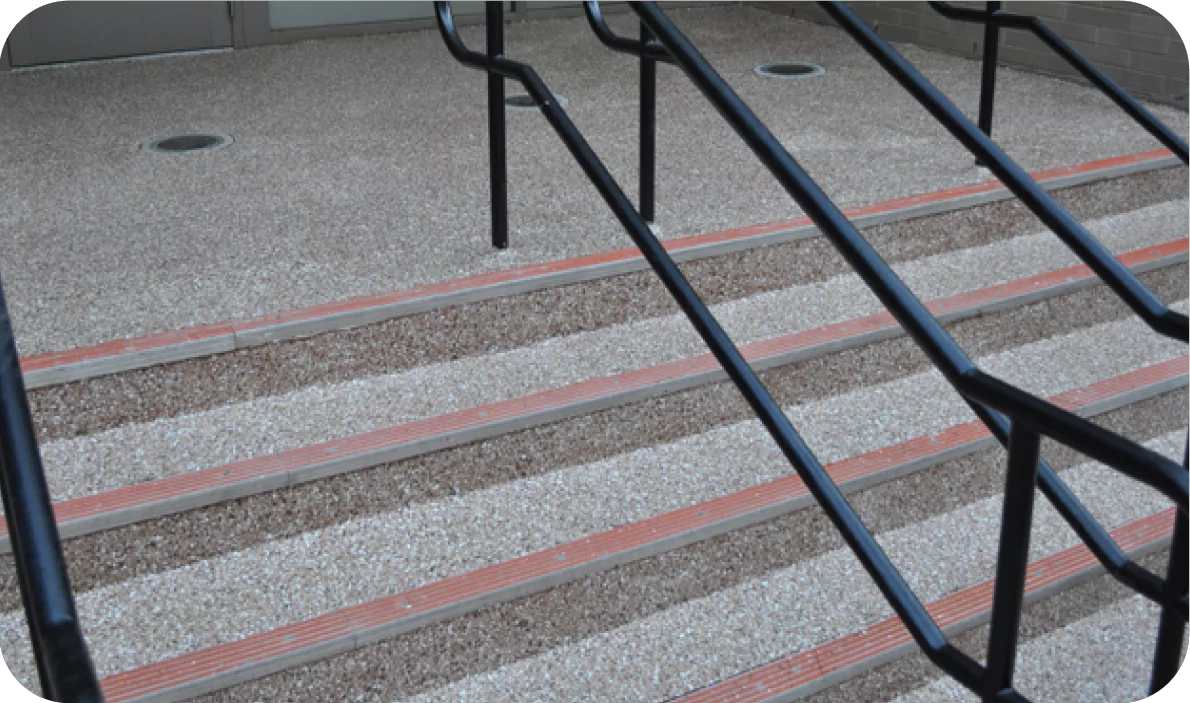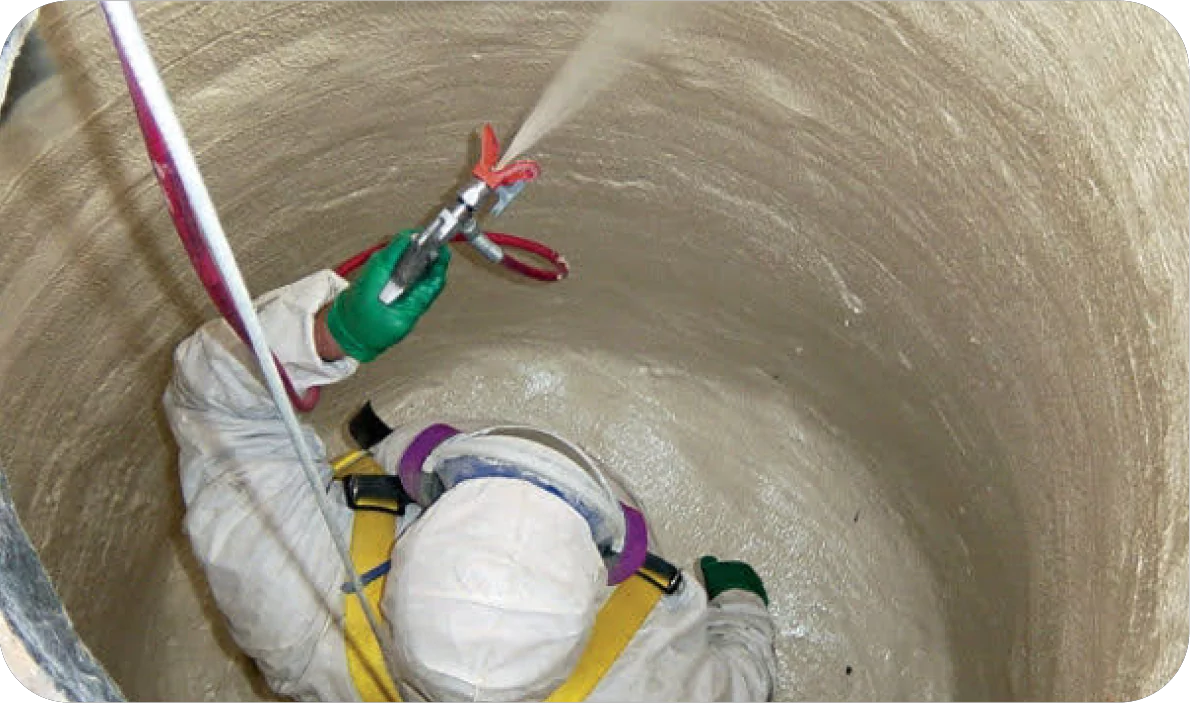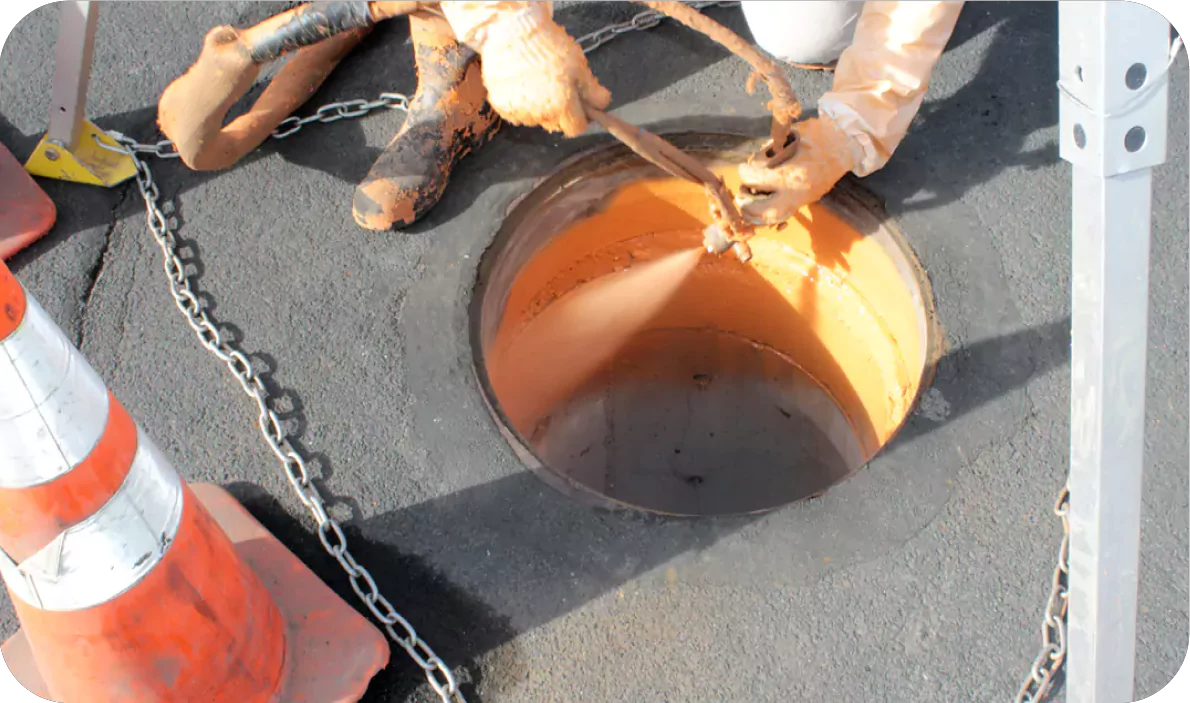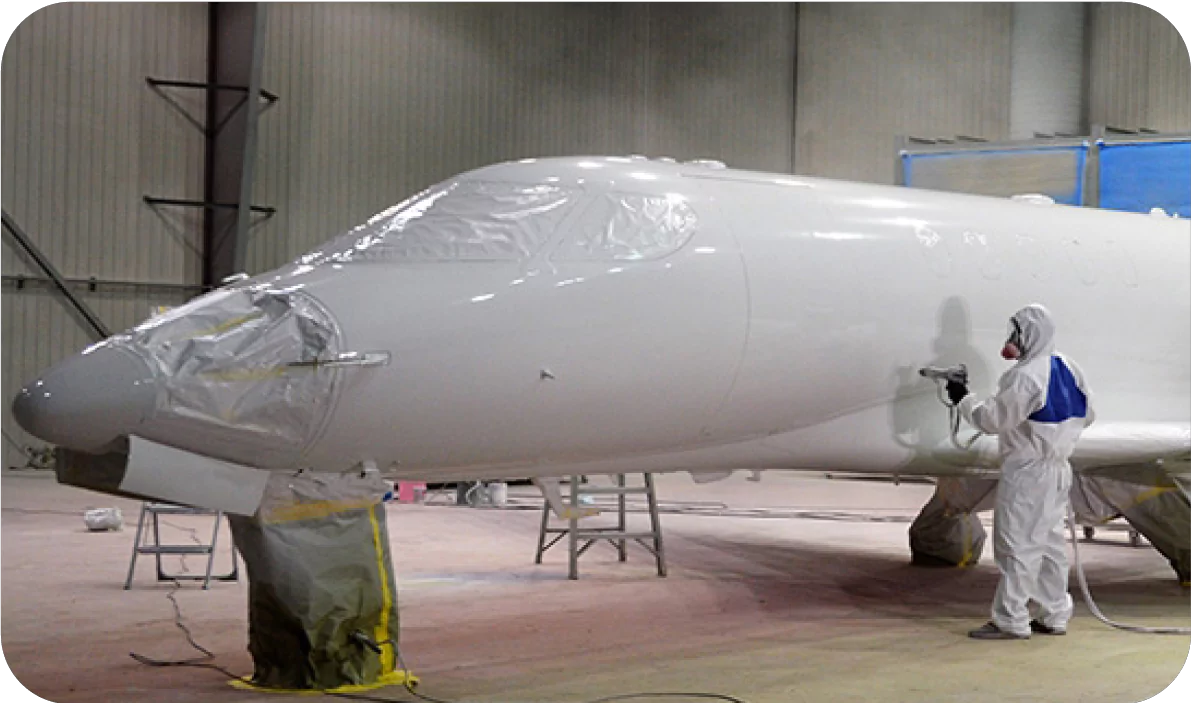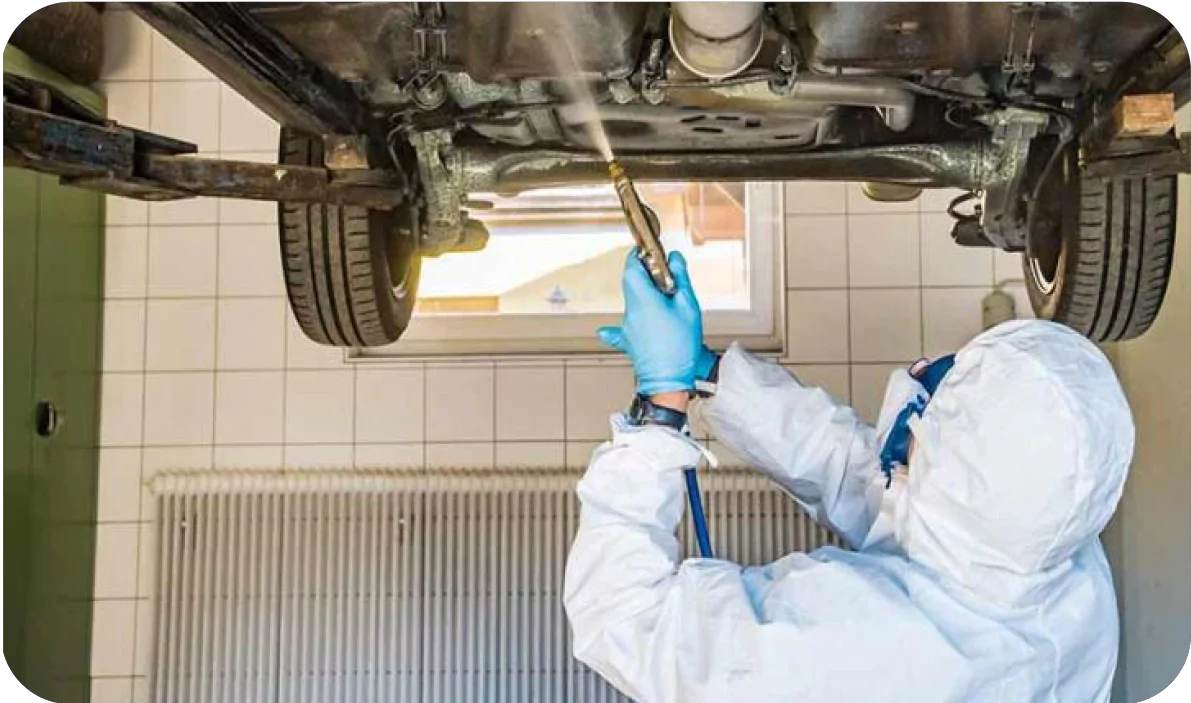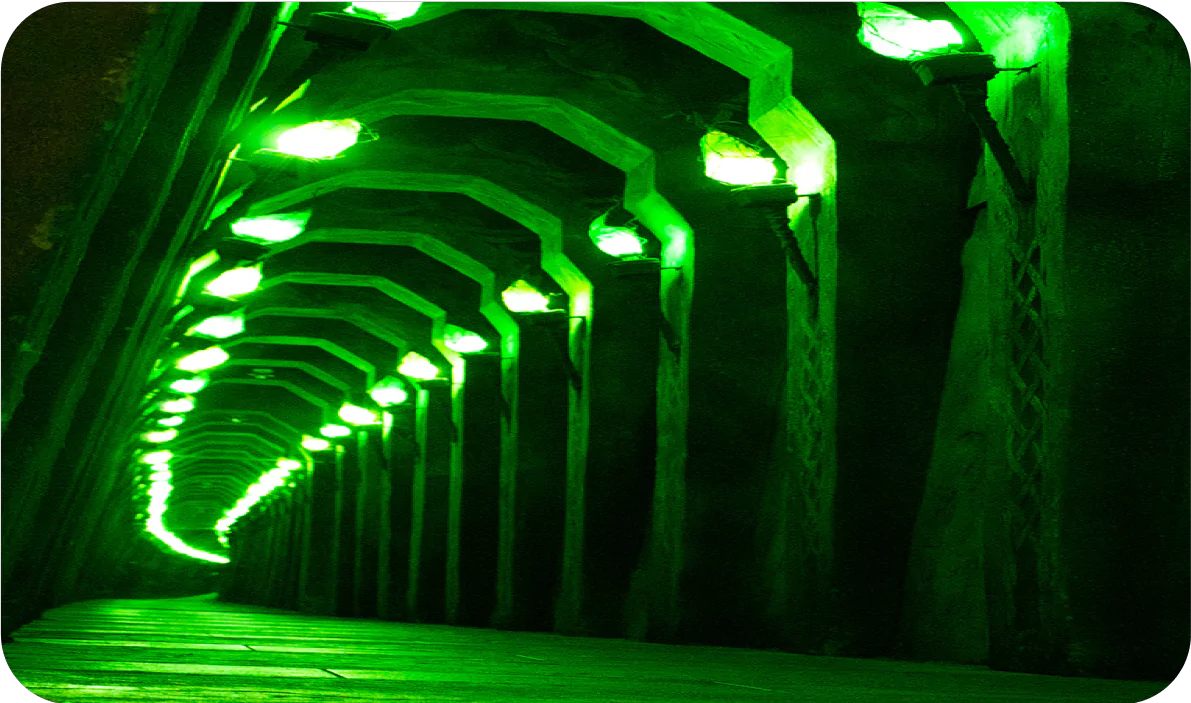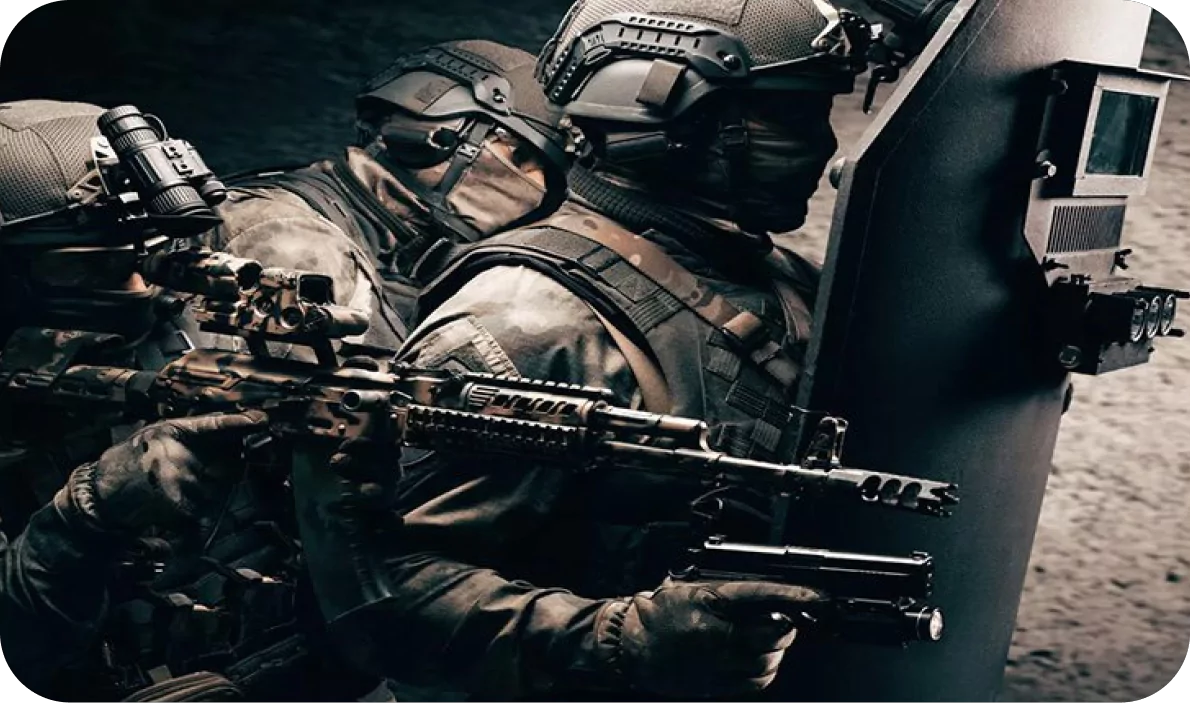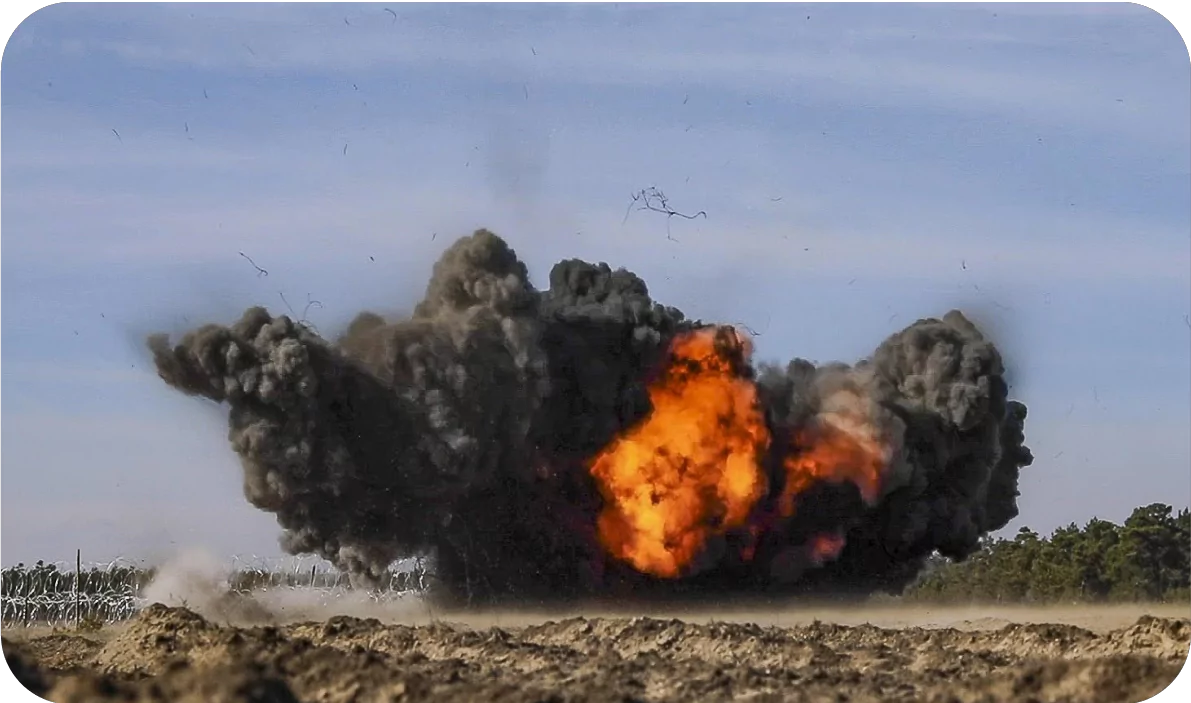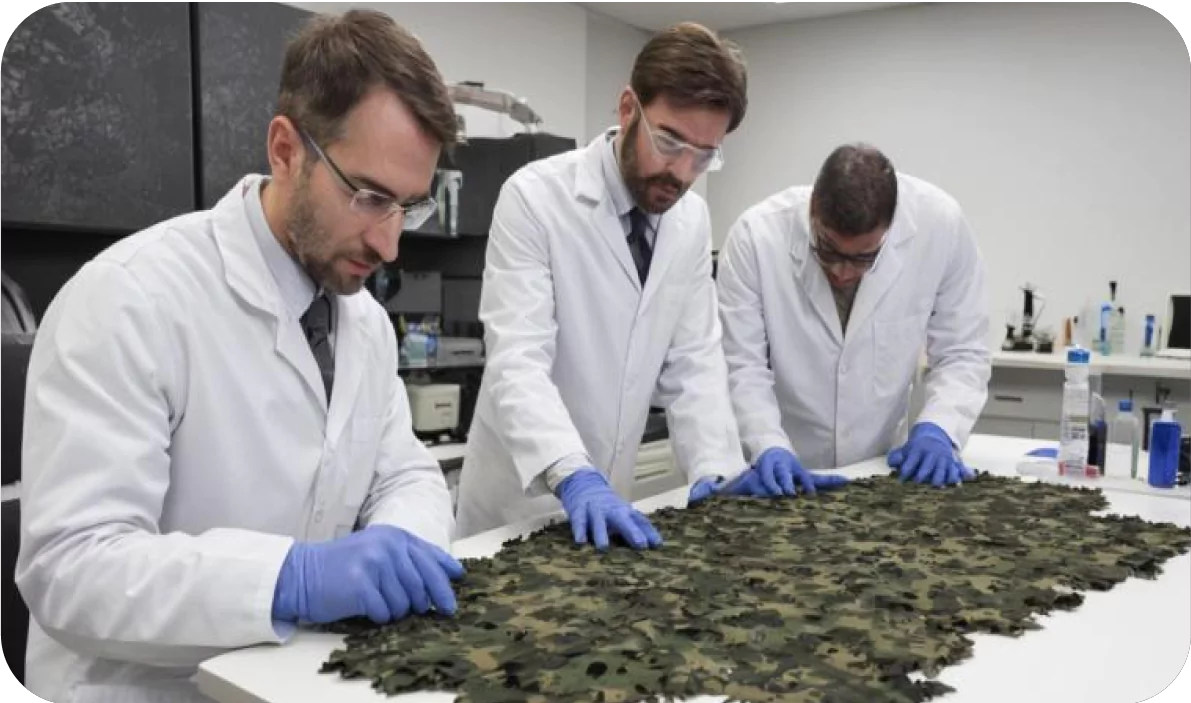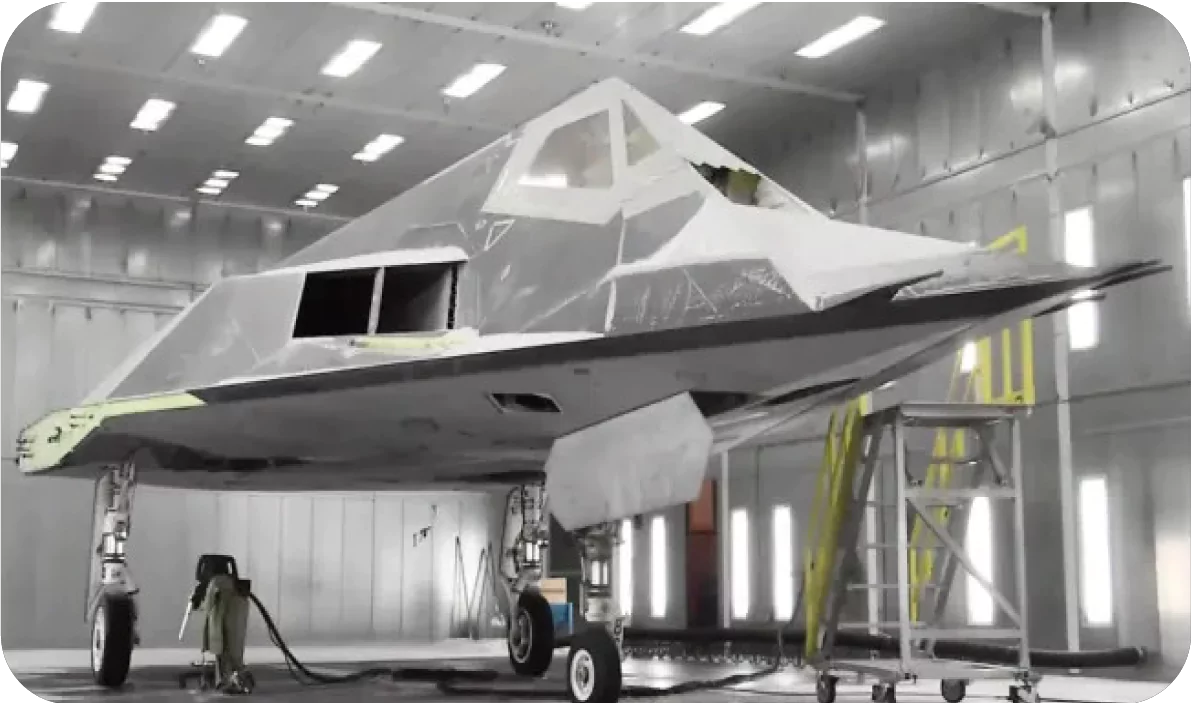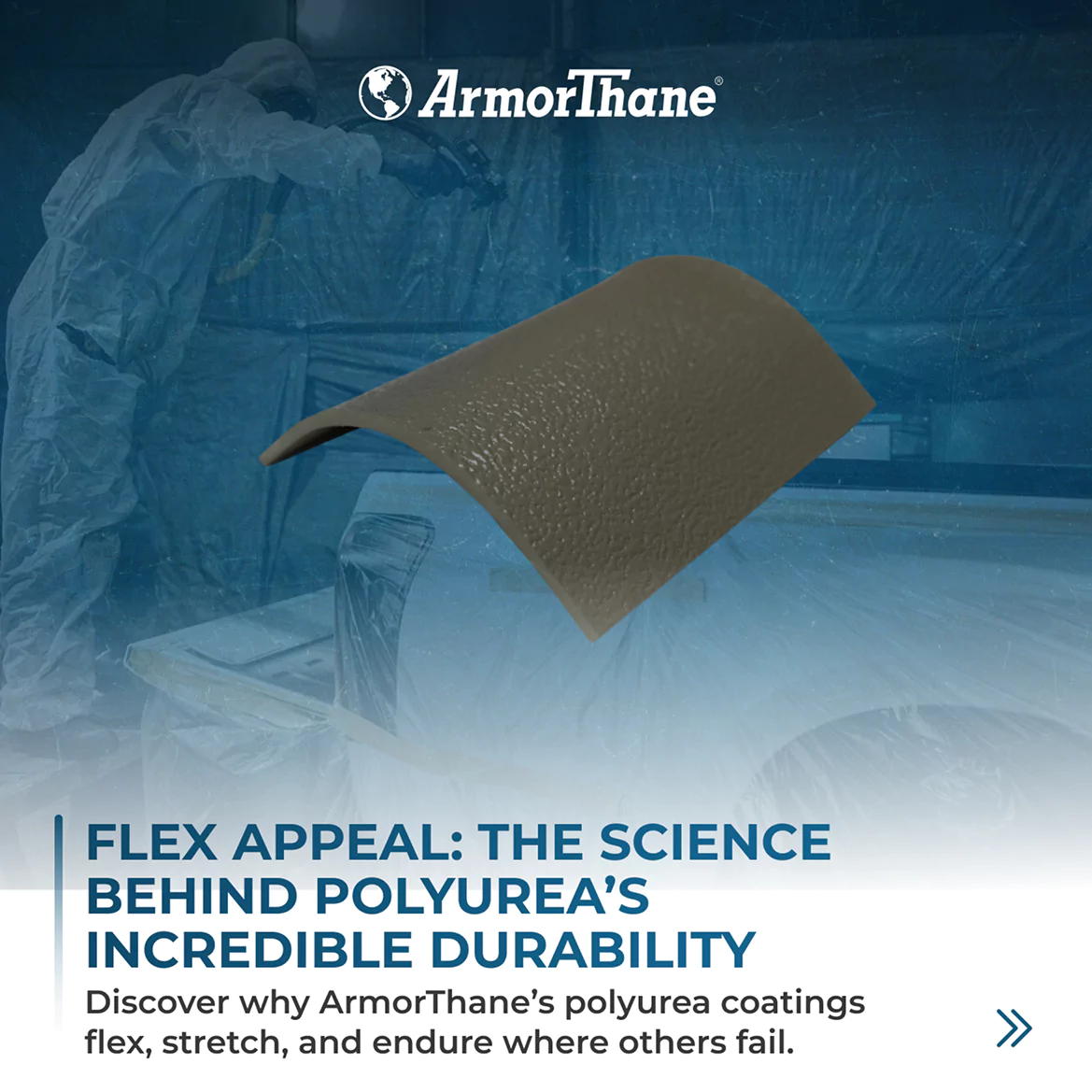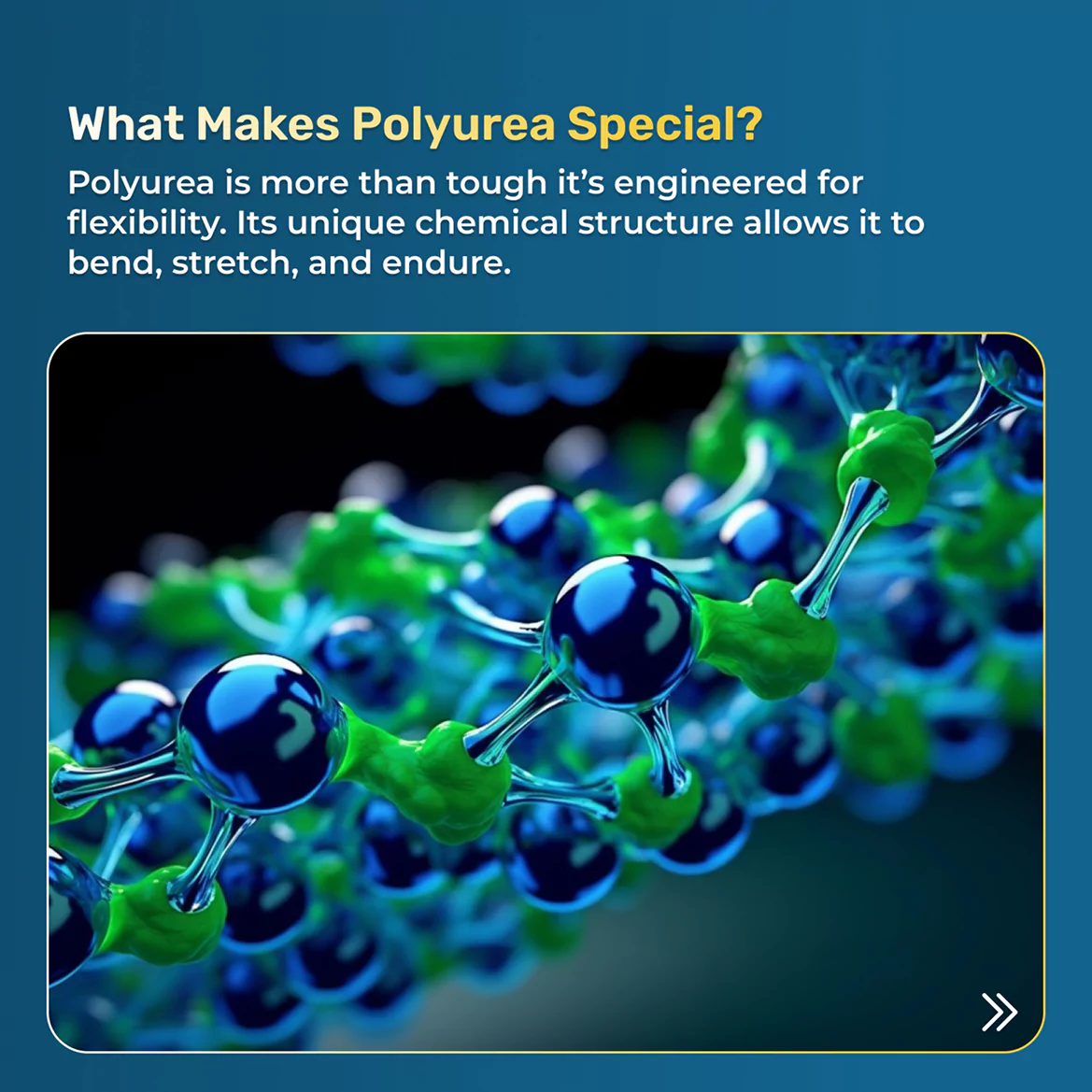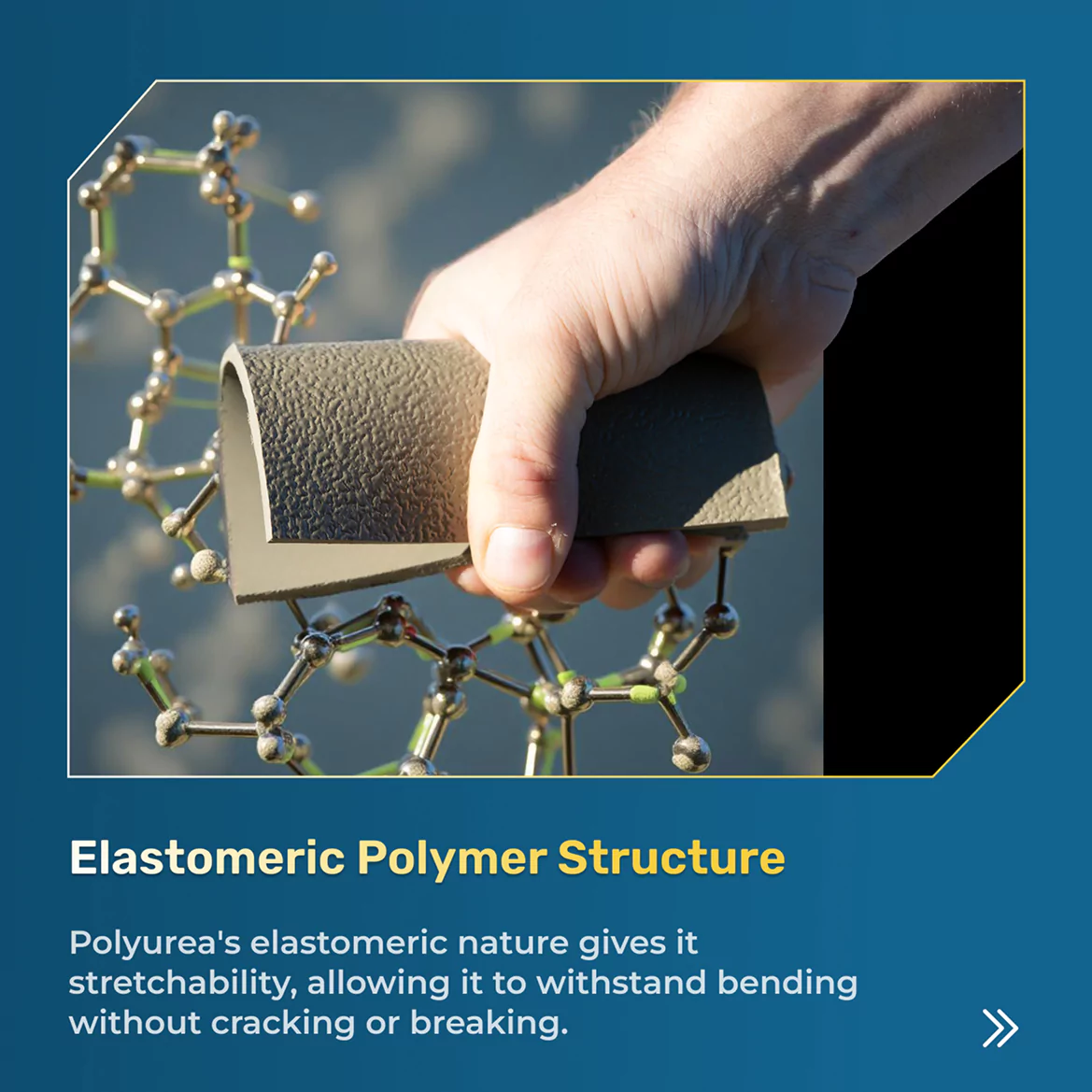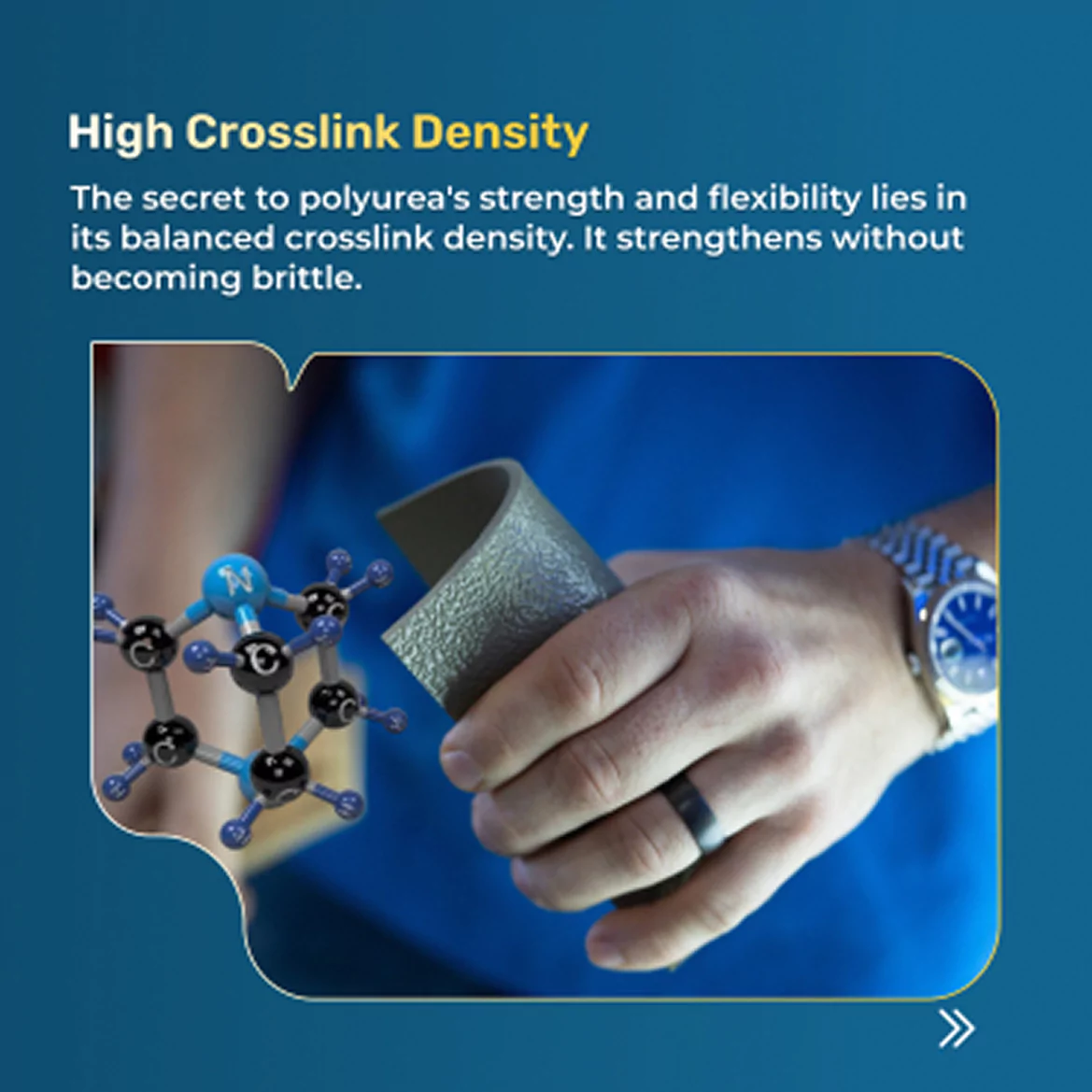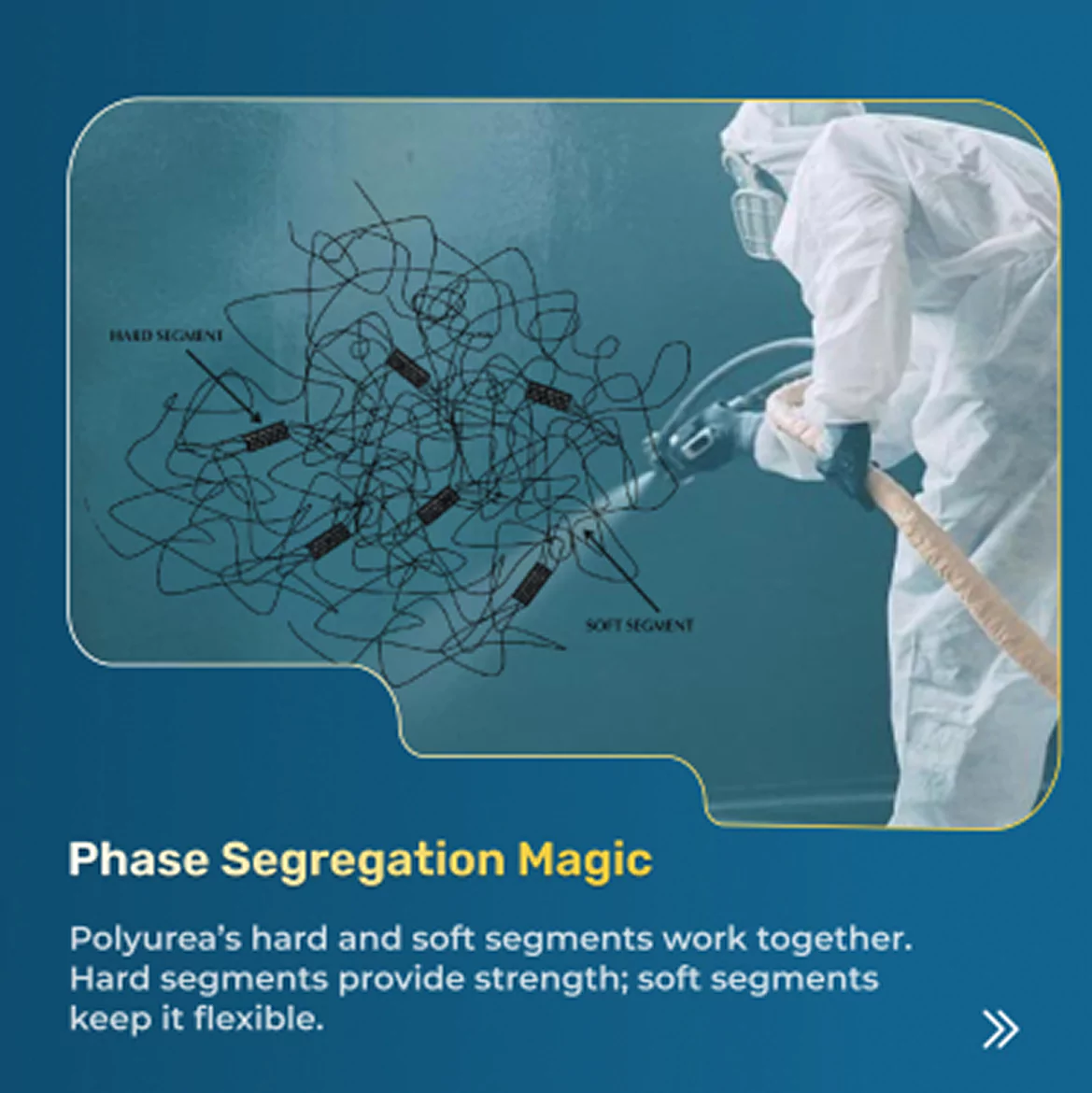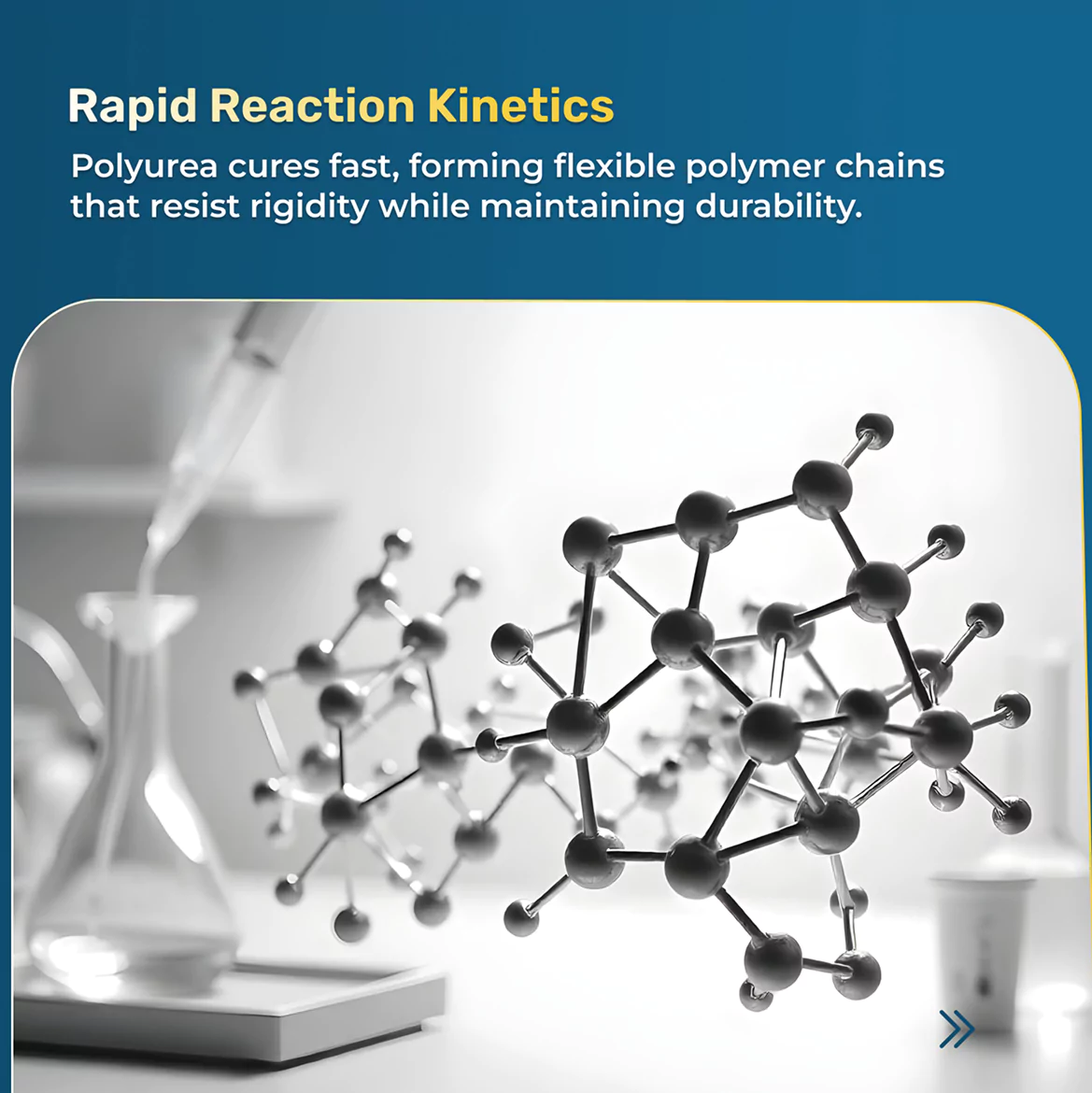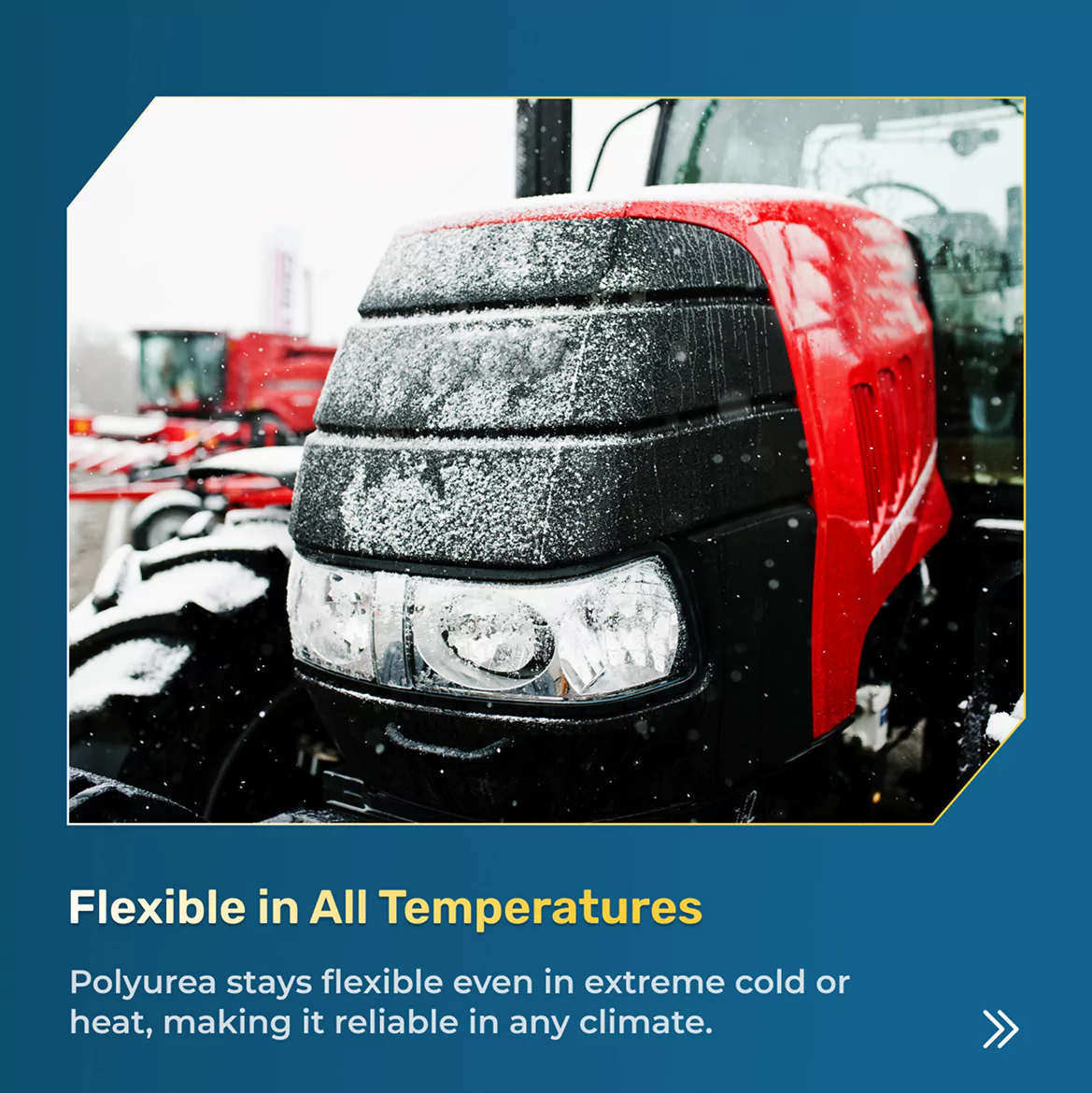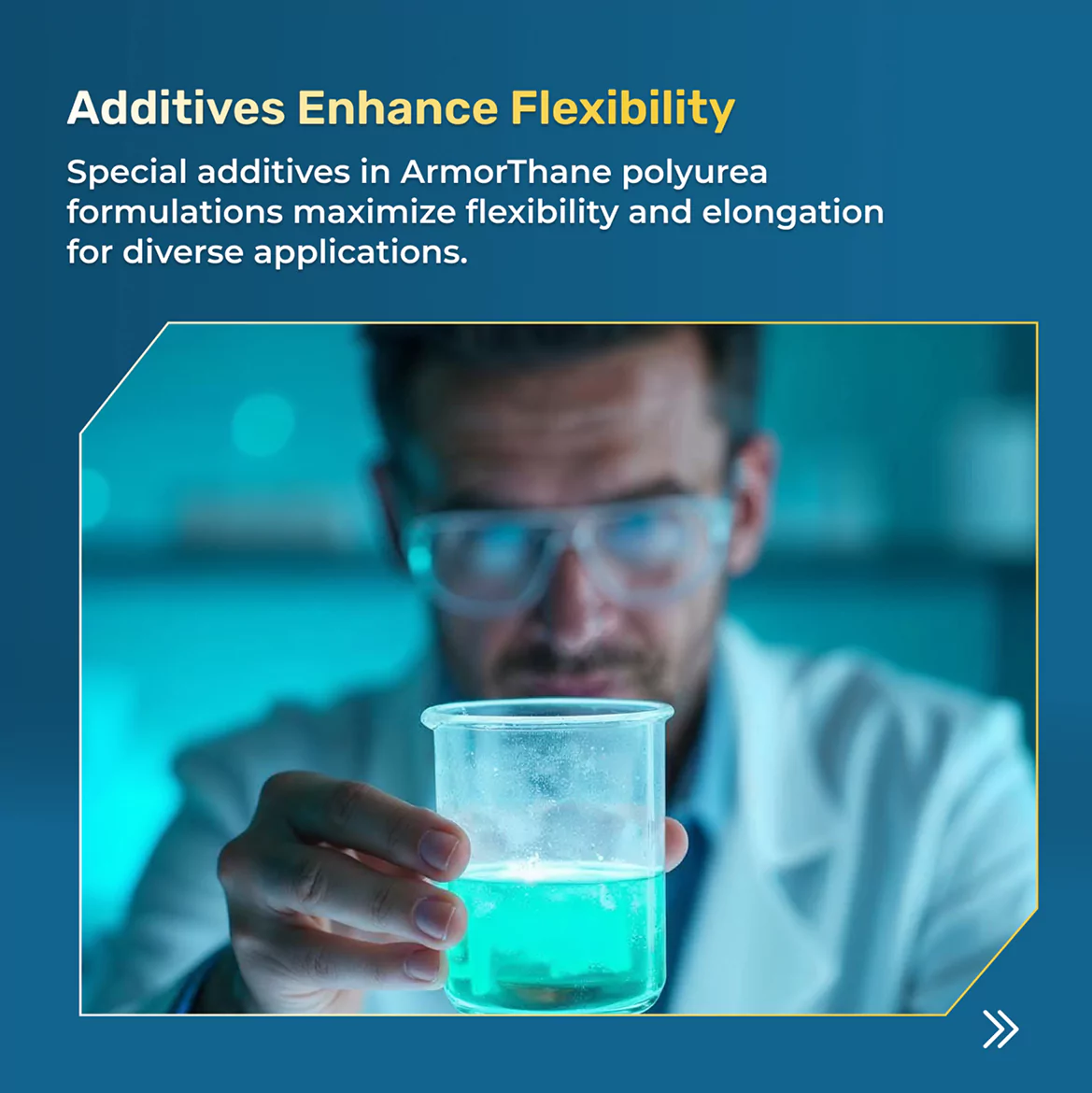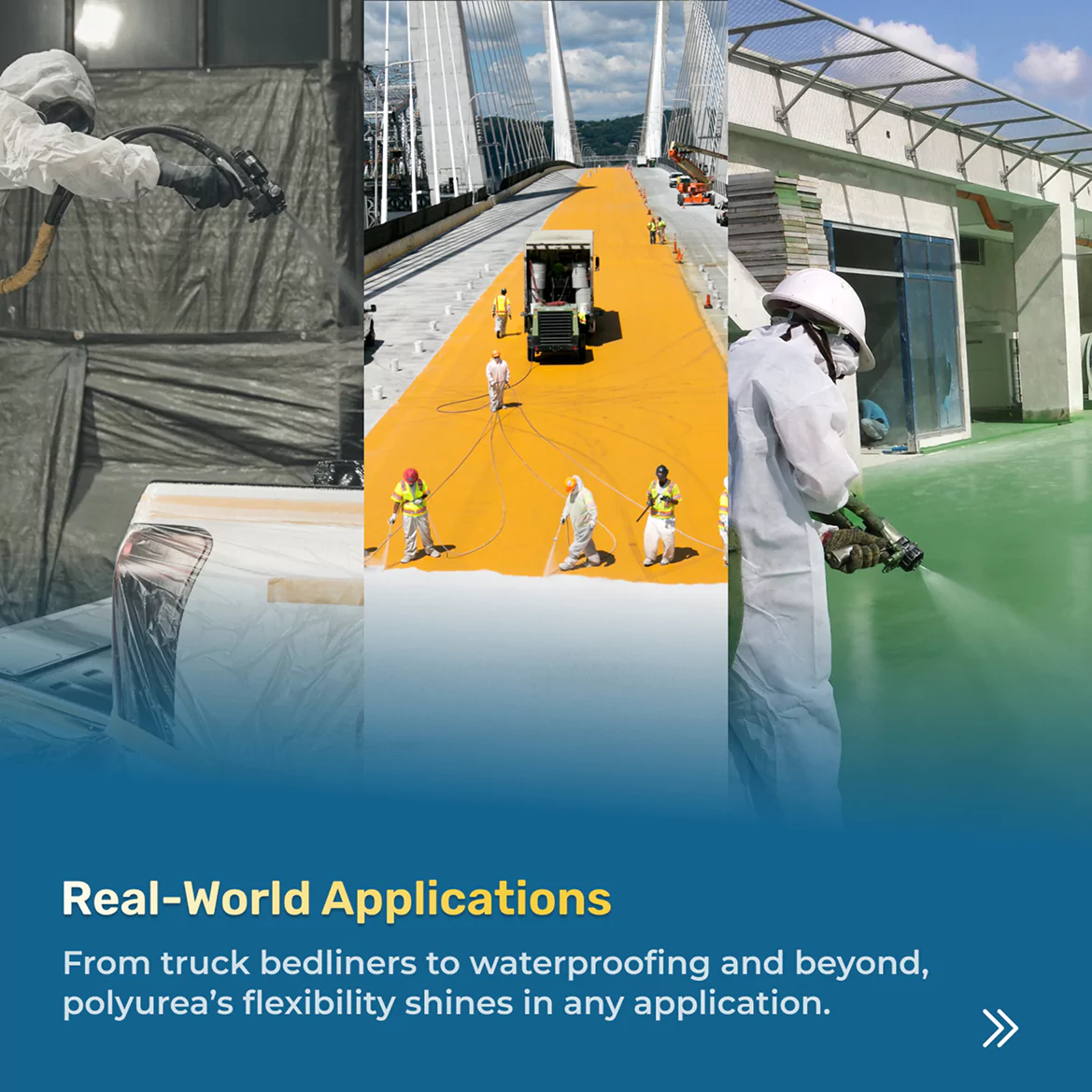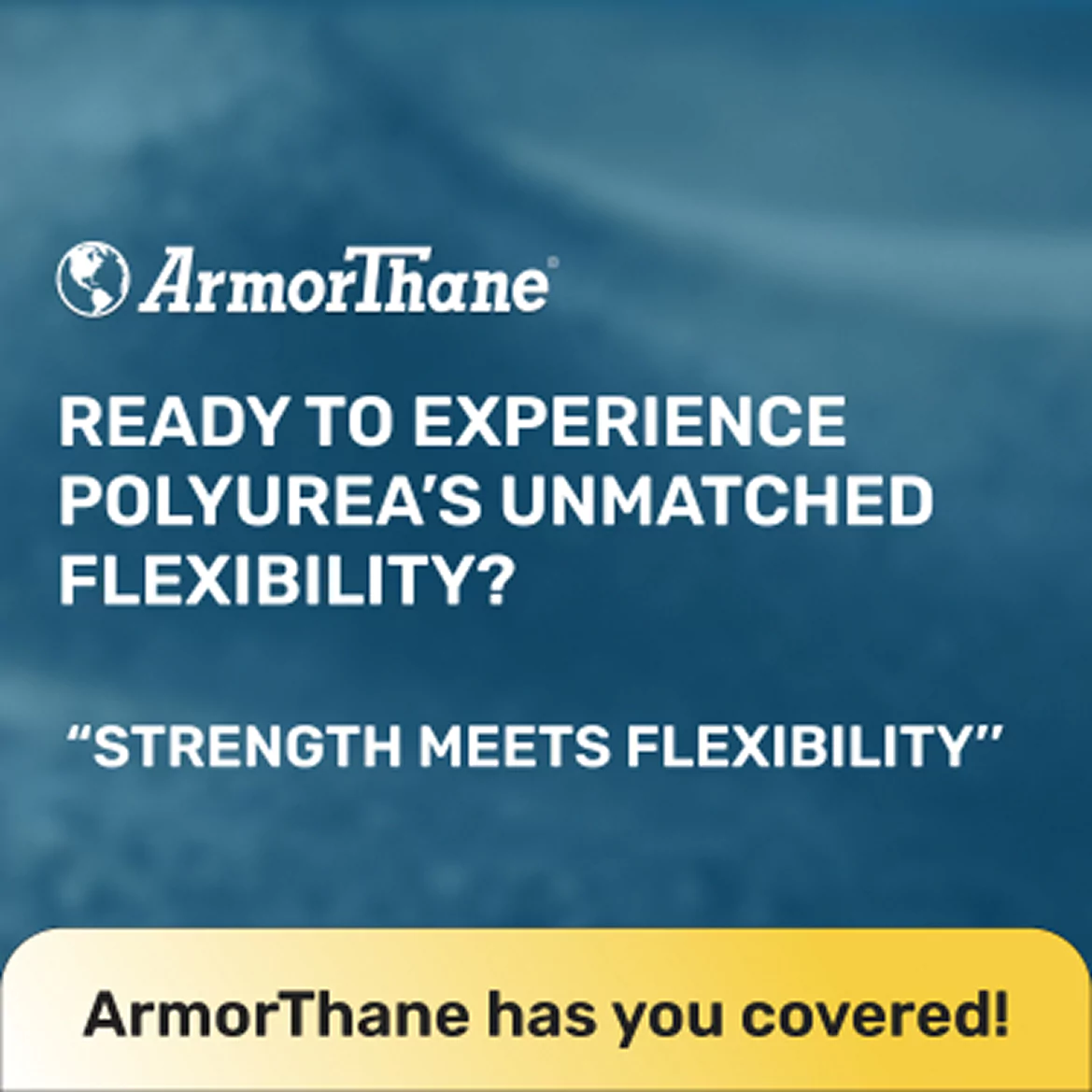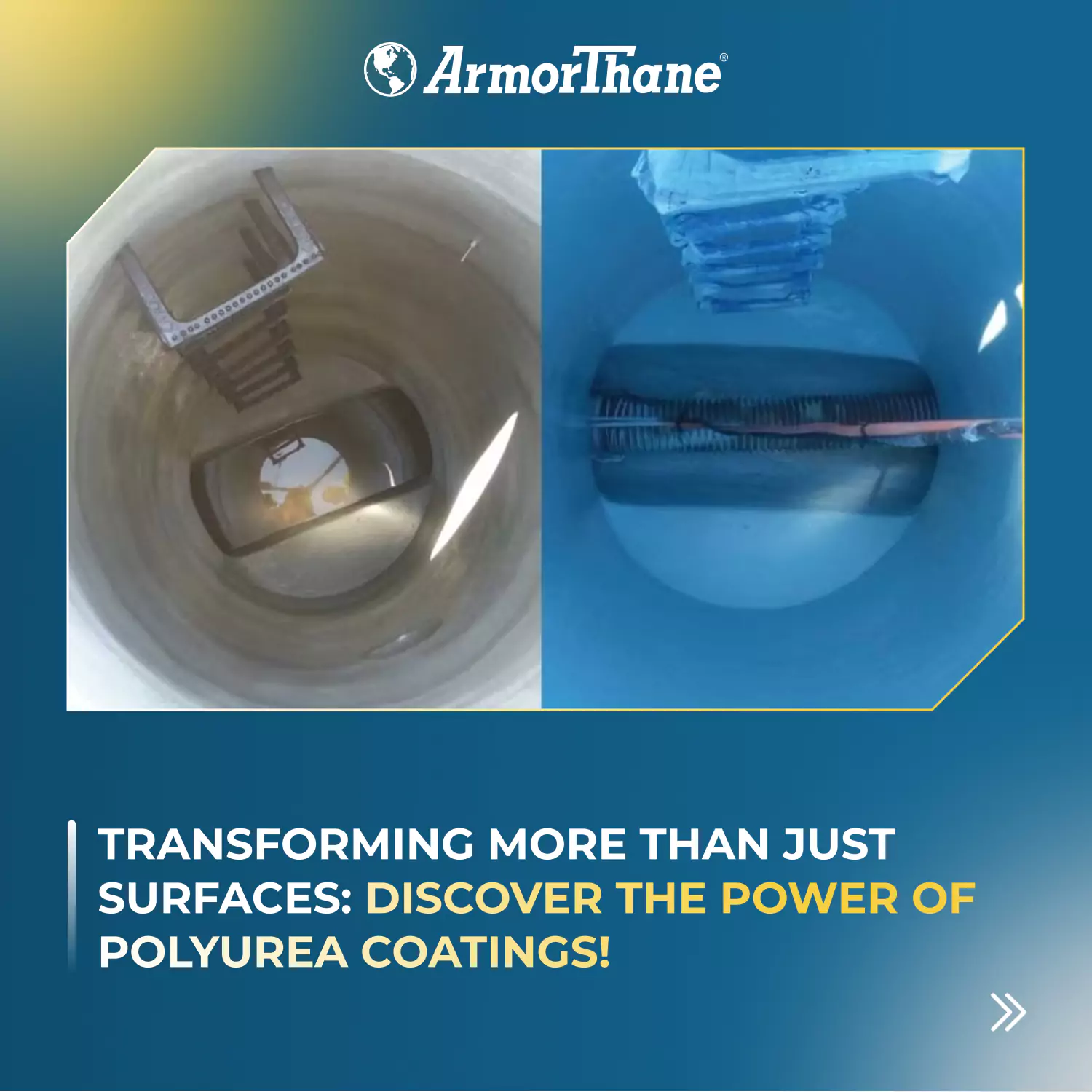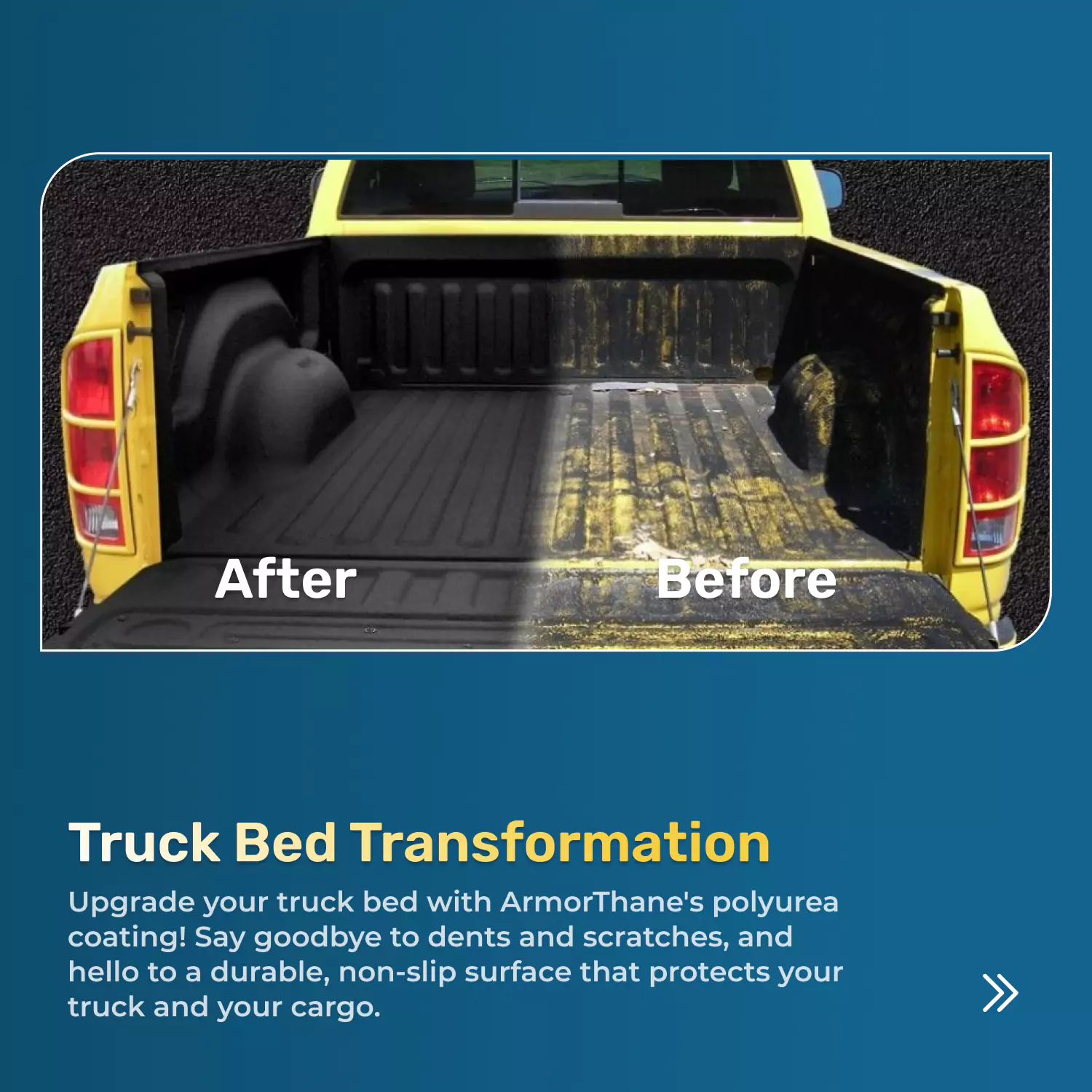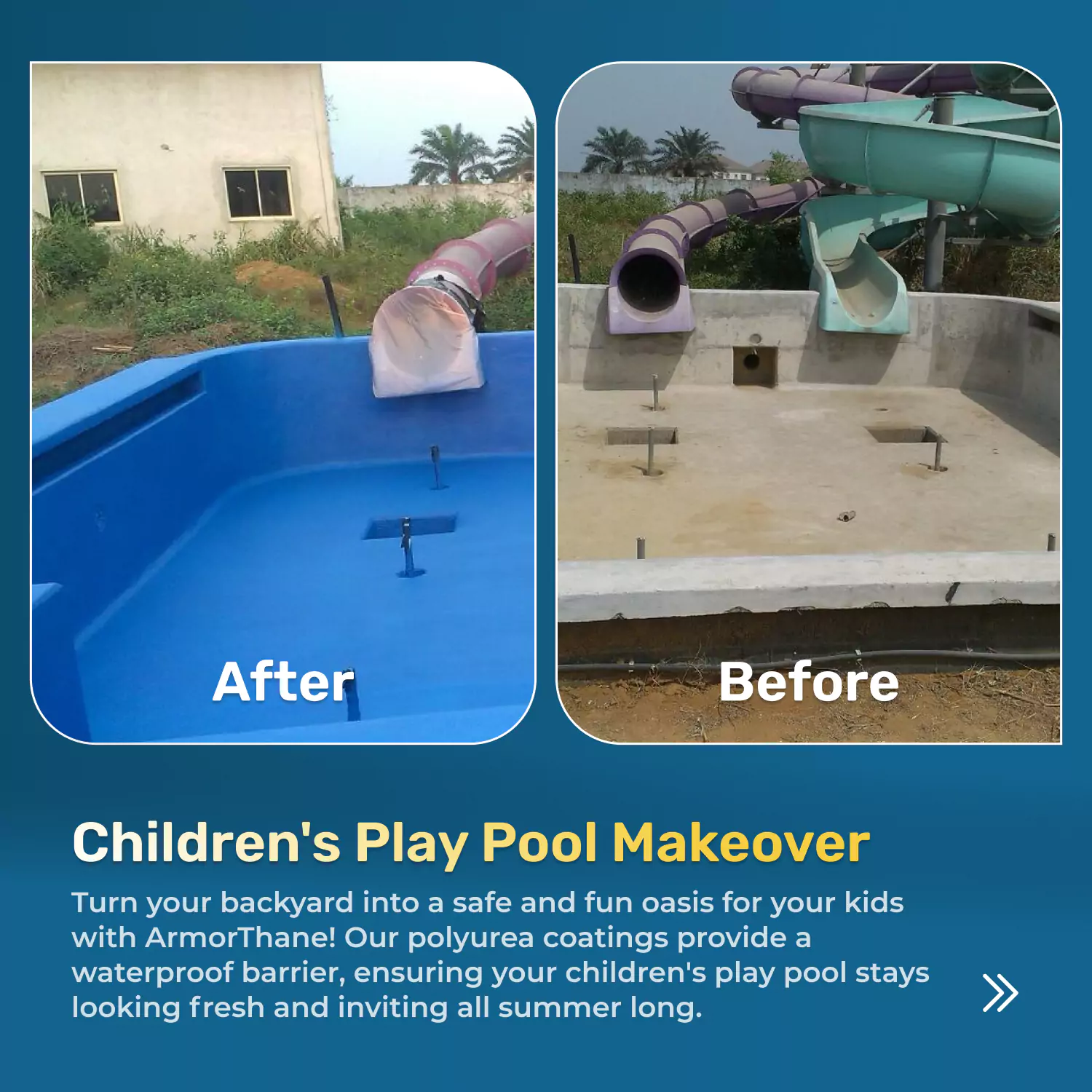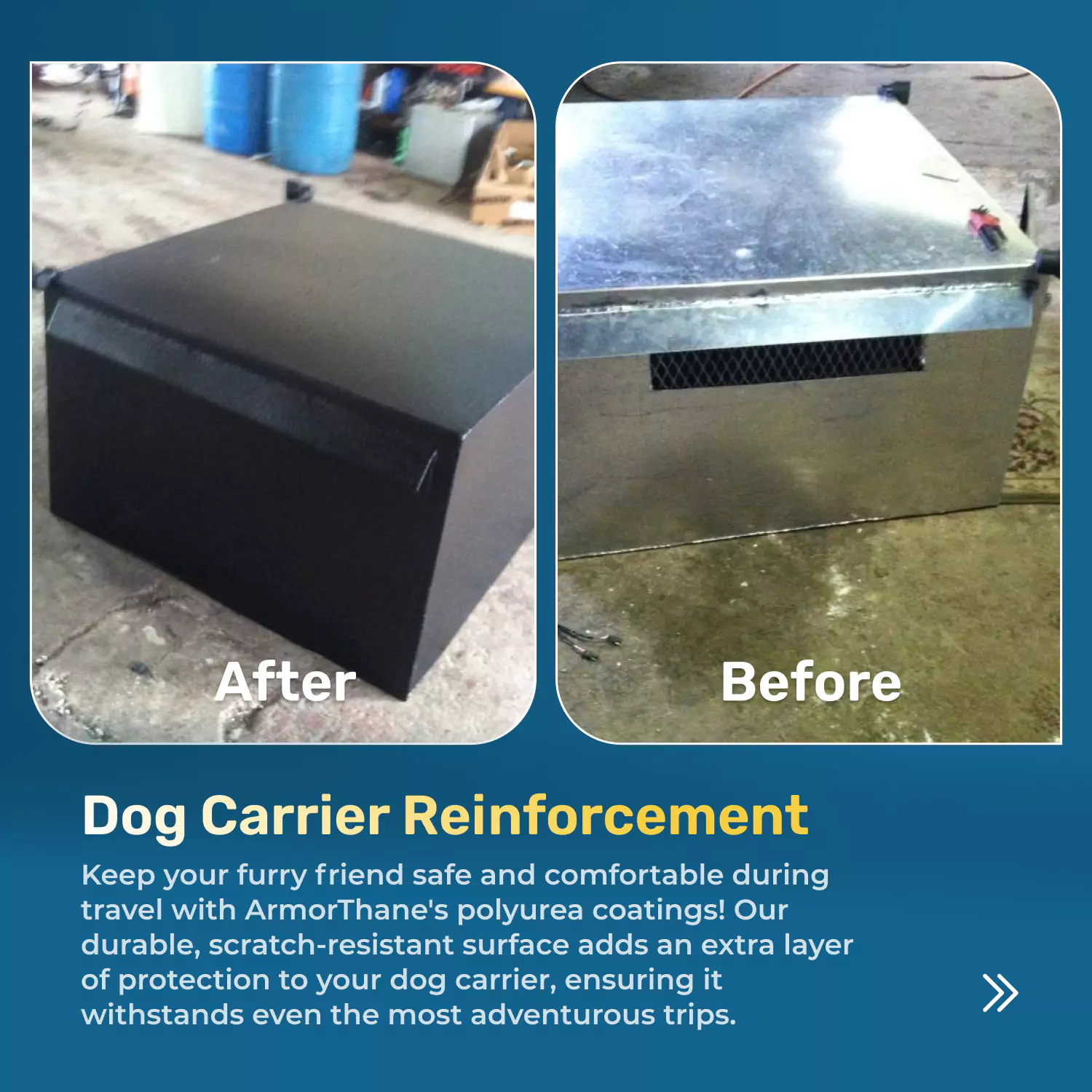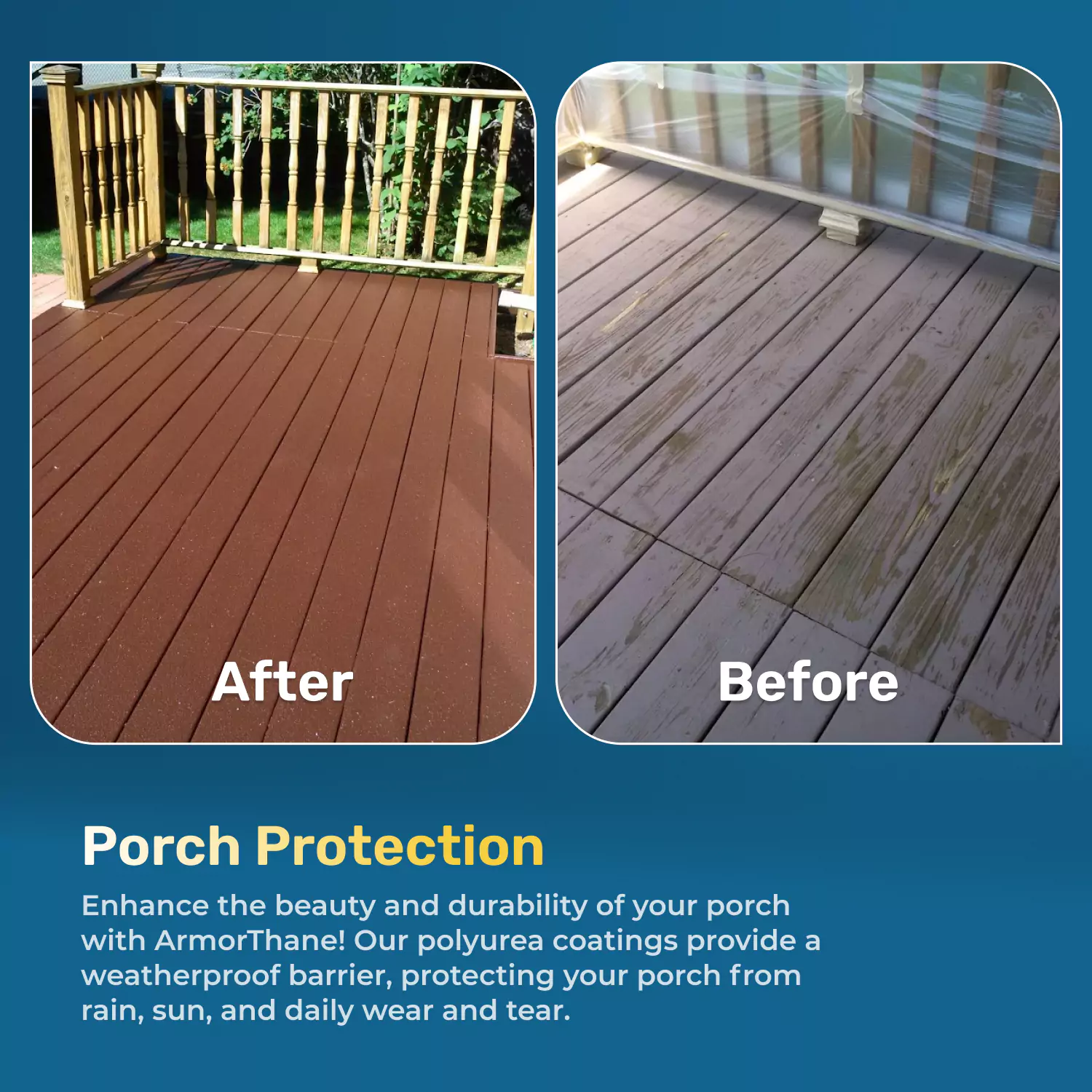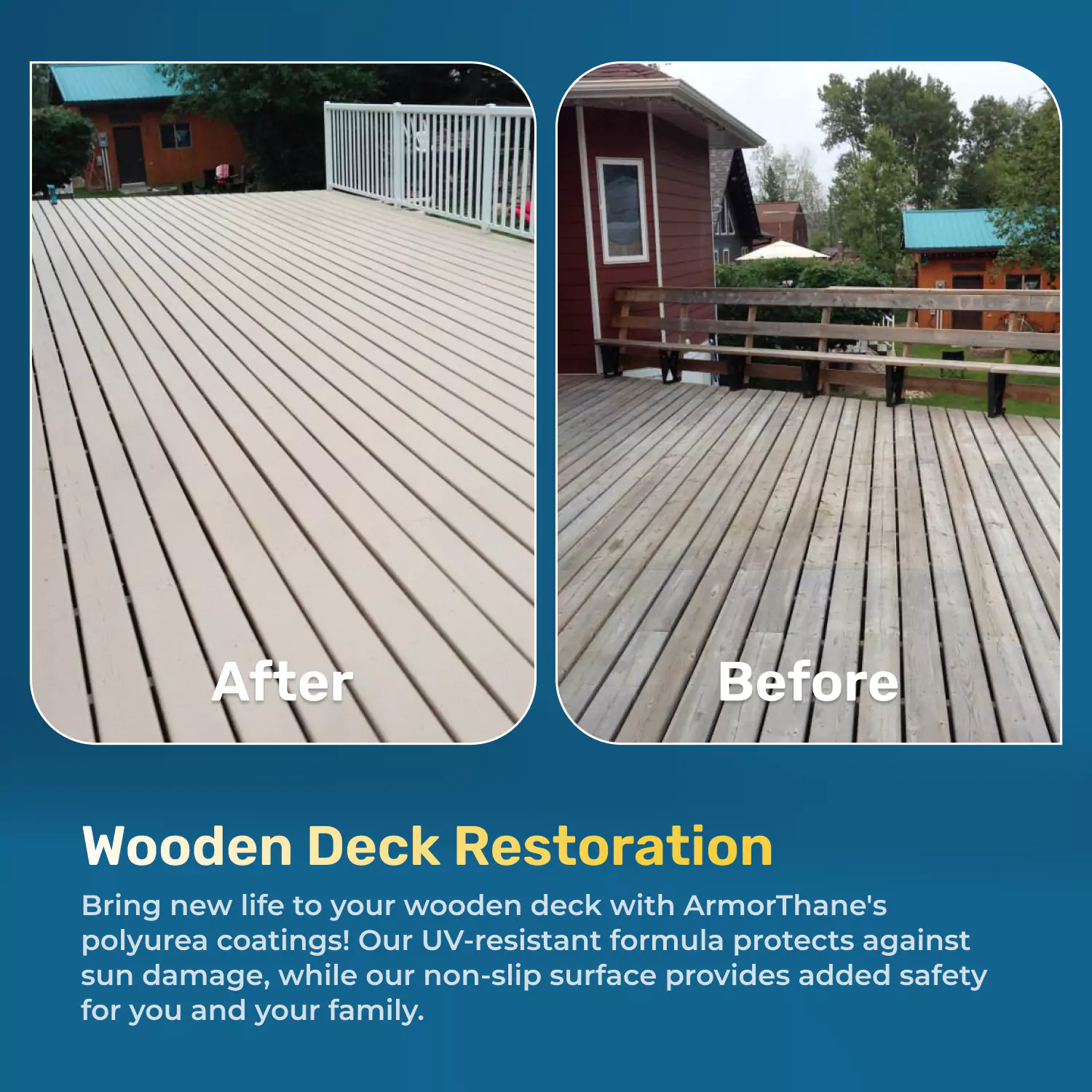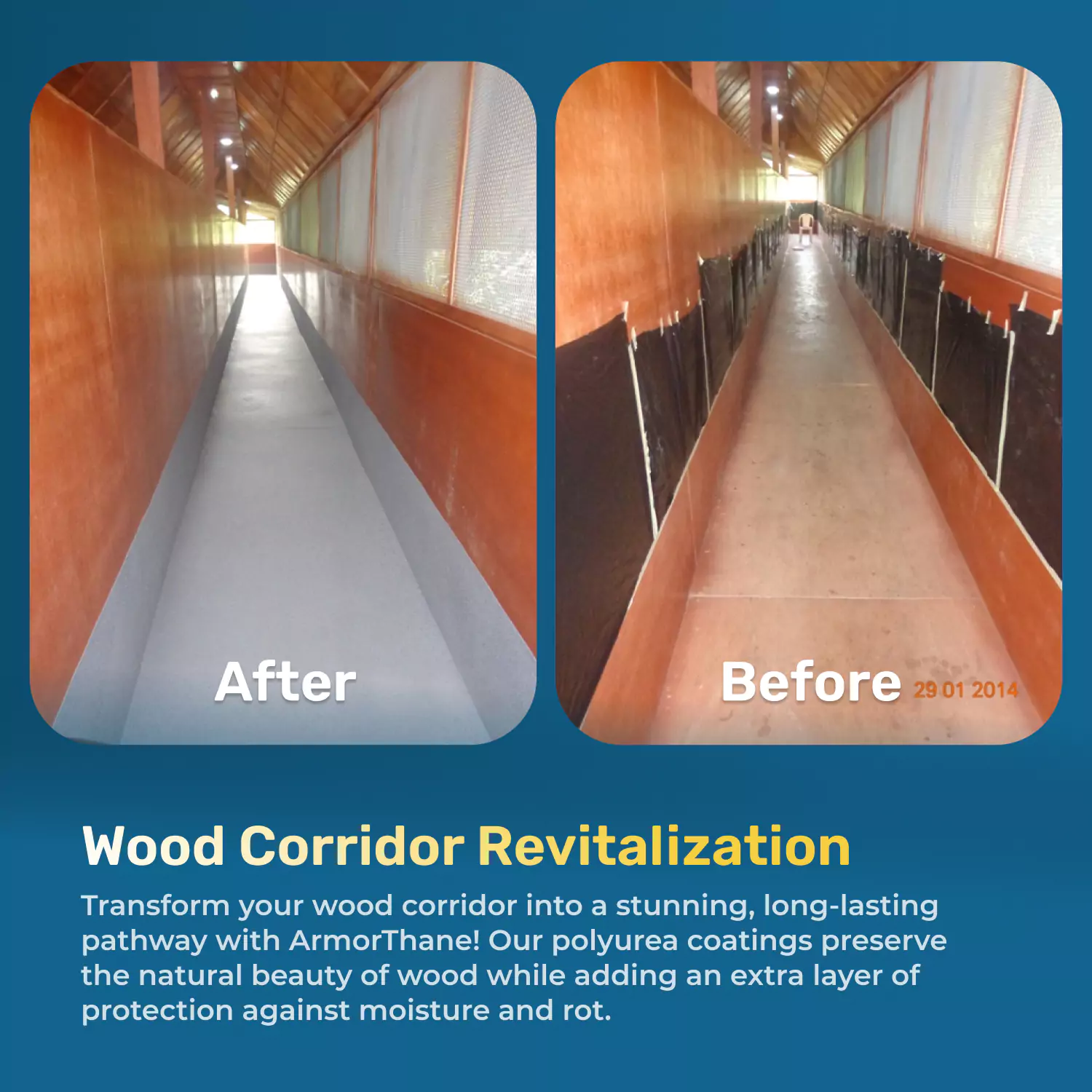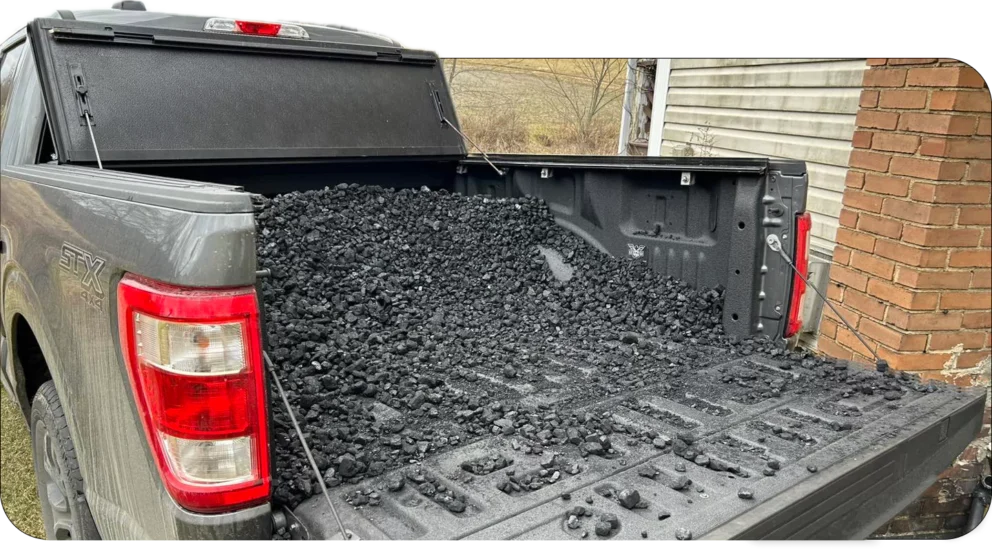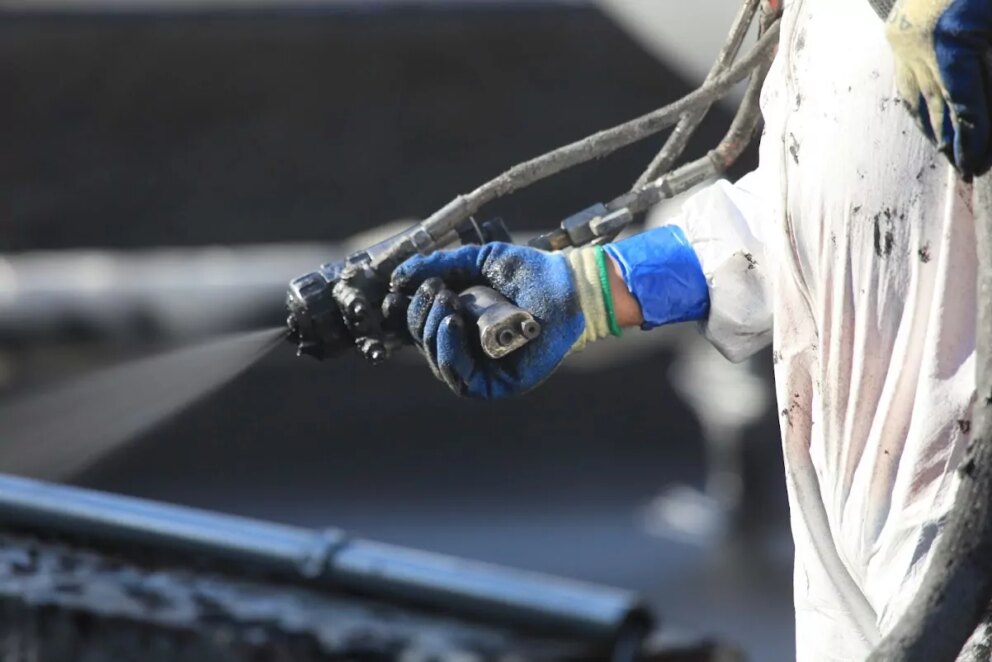Important Things TO
KNOW
ABOUT POLYUREA
COATINGS
IMPORTANT THINGS TO
KNOW ABOUT POLYUREA
COATINGS
what are polyurea coatings?
Polyurea is an innovative technology created by the reaction of a simple two-component system. It’s used as a protective coating for many different applications, from waterproofing concrete surfaces when used in concrete floor coatings and concrete sealers to preventing corrosion on metal substrates when employed as metal roof coatings or metal tank liners. Polyurea coatings feature favorable application characteristics like a rapid cure time and high humidity tolerance and are easily installed by professional applicators using advanced spray equipment. After curing, polyurea coatings wield powerful physical and chemical properties, such as high tensile strength and excellent resistance to many types of corrosive substances. Together, this makes polyurea a convenient, cost-effective, and versatile materials technology for reliable surface protection in almost any environment and for nearly every application. They’ve become the go-to tough coating for applicators, and here we’ll explain everything you need to know about polyurea coatings, including how they work, the different types of polyurea coatings, where they’re used, and why you should choose polyurea for your next coatings project.
THE CHEMISTRY OF POLYUREA
Polyurea’s unique chemistry is fundamentally responsible for its exceptional physical and chemical properties and widespread adoption. Polyurea is an elastomer, a type of durable plastic, produced by the reaction of polyisocyanates and polyamines, resulting in the formation of urea linkages in its structure, which makes polyureas such a high-strength, tough coating. They can protect against abrasion, corrosive chemicals, UV radiation, and other operational and environmental stressors and exhibit excellent adhesion to most substrate materials, including metals, plastics, concrete, fiberglass, and geotextile fabric. Polyurea can also withstand a wide range of temperature and moisture conditions that allow for its fast and reliable application in almost any environment. Moreover, polyurea is 100% solids with no solvents or volatile organic chemicals (VOCs), which makes it a safer technology that complies with even the most stringent environmental regulations. After curing, the final system is safe for direct contact, but careful adherence to safety procedures should be followed during the installation process, such as wearing comprehensive PPE and ensuring proper ventilation of indoor spaces.
While the final result is a single material, polyurea coatings are not made from a single component; they’re created on-site during the installation process from two separate components (an isocyanate and a mixed resin blend), making it easy to prepare, manage, and apply. The two components react very rapidly, so they must be mixed very shortly before (approximately 60 seconds or less) contacting treated surfaces. To achieve this, the components are mixed as they’re ejected from the nozzle of spray gun equipment instead of being mixed in advance. This means polyurea does not have an unlimited pot life – far from it – but it does afford polyurea with its notoriously fast cure time. For many commercial applications like polyurea garage floor coatings and other large surface area projects, this rapid cure time, paired with the speed and flexibility of spray-on coatings, makes tackling surfaces of a large sq. ft. faster and far easier – especially compared to roll-on applications relying on roller covers for installation.
what are the different
types of polyurea coatings
There are several different types of polyurea coatings, which are categorized by their composition and chemical structure. Most broadly, polyurea is divided into two main groups, which include pure polyurea and hybrid polyurea. Pure polyurea coatings are comprised of only two basic components, whereas hybrid polyurea coatings incorporate other materials like polyurethane or epoxy. Since pure polyureas are formed by the reaction of only two materials, their potential properties are restricted by the limited flexibility in their formulation. So while a more complex system, the properties of hybrid polyurea formulations are more modular, and can be precisely engineered to improve specific attributes including hardness, color stability, or finish.
Within pure polyurea, there are two different types: aromatic polyurea and aliphatic polyurea.
aromatic polyurea
Aromatic polyurea is formed using aromatic diisocyanates like MDI or TDI, and exhibits excellence performance across its many applications. This type of pure polyurea represents the vast majority of polyurea coatings, giving it a reputation as the workhorse of the industry. However, aromatic polyurea lacks a critical property exhibited by aliphatic polyurea, which is light stability. Aromatic polyurea is not light stable, meaning that over time it will yellow and fade if exposed to UV radiation. Thankfully, this discoloration happens without degrading its physical properties, leaving the coating otherwise unaffected.
aliphatic polyurea
On the other hand, aliphatic polyurea offers arguably better weathering and abrasion resistance while also being light-stable, making it the superior choice for installing base coat colors. The catch is that while an overall more robust protective coating, aliphatic polyurea is more difficult to process and can cost more than double compared to aromatic alternatives. For this reason, aliphatic polyurea coatings are a superior choice for outdoor applications where UV exposure is an unavoidable part of daily operating conditions, justifying the extra expense.
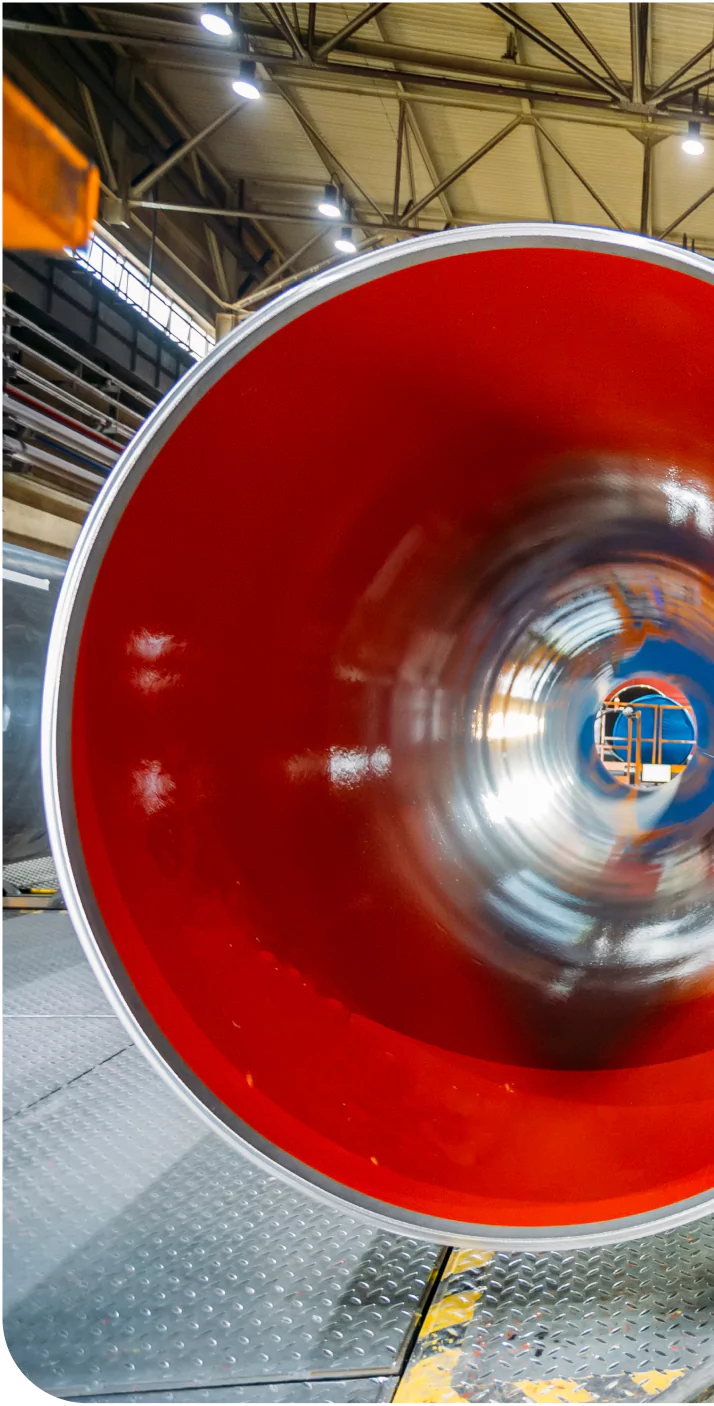
WHERE ARE POLYUREA COATINGS USED
Polyurea coatings are used in countless different applications, with new and interesting uses still being explored. For example, polyurea coatings are used in the construction industry to protect structures against extreme weather, water intrusion, and physical abrasions. Here, its rapid cure time is an especially big advantage, helping meet the tight deadlines and even tighter budget constraints typical of the construction industry. In the automotive industry, polyurea’s abrasion and impact resistance helps protect vehicles from bumps, spills, drops, or any other type of high-impact collisions that are all too common for motor vehicles. It also helps improve a vehicle’s performance, absorbing noisy and even potentially damaging vibrations to reduce wear and eliminate distracting sounds, which is invaluable for emergency vehicles, commercial vehicles, and performance vehicles. Likewise, marine applications also benefit from polyurea’s strong abrasion resistance, protecting vessels and dockside infrastructure from bumpy landings and shifting cargo. Perfect for marine applications, polyurea’s excellent water resistance provides an additional layer of corrosion protection and a more reliable way to seal components, compartments, and cables.
And the list goes on! From agricultural equipment to military installations and garage flooring, polyurea can be applied to almost any surface to provide lasting protection in demanding environments
WHY CHOOSE POLYUREA COATINGS?
Polyurea coatings offer many significant advantages over other coating technologies, which is why they’ve continued to explode in popularity across their varied applications. Simply put, polyurea outperforms almost every other protective coating in terms of physical properties. It can be easily formulated to achieve precise performance capabilities and adheres strongly to different substrates, including metal, concrete, wood, and even some types of plastics. And regardless of formulation or application, polyurea coatings are applied faster than any other type of coating technology to see treated surfaces return to service with minimal downtime. This can mean saving on days or even weeks of lost revenue, which reveals alternatives that initially may have seemed to be cheaper alternatives as actually more costly and less reliable solutions.
For the best in product and service quality, consider making your future polyurea orders with ArmorThane. We’re real people who provide personal support to guide and equip you with anything you need for a successful coatings project. From simple installations like treating your shop floors to more regular or challenging projects that may demand full broadcast kits, we’ve got you covered. Simply give us a call or fill out our online contact form and find out why we’ve become the industry’s one-stop shop for everything polyurea and polyurethane.
FAQ FREQUENTLY ASKED QUESTIONS
Polyurea is a more advanced technology than epoxy and has become increasingly popular in recent years due to its superiority over epoxy performance. It is more durable than epoxy as well as more flexible because it is an elastomer. Polyurea is less toxic than epoxy, which makes it an appealing choice for environments where humans inhabit space, such as industrial facilities, healthcare settings, food processing and packaging plants. We could go on and on here but we think you get the point...
In industrial settings where excessive abrasion may occur but no chemical wear is expected (e.g., warehouse floors), a well-applied and properly maintained polyurea coating will typically last 20 – 25 years or more, depending on foot traffic and other environmental conditions. It’s important to note that proper maintenance is key in ensuring the lifetime of any protective coating; regular inspections should be made for signs of damage or deterioration, while proper cleaning techniques should be followed during routine maintenance activities for optimum results.
Under certain conditions, yes, polyurea can potentially crack. This is because polyurea is a thermoplastic material, like many other protective coatings and liners. It can become brittle and eventually crack when exposed to a sudden or excessive temperature change of more than 40°F (22°C). This cracking typically occurs in two ways – crazing or micro-fracturing.
Crazing refers to the formation of small cracks in the surface of the coating due to shrinkage after application. Micro-fracturing involves deeper cracks caused by increased coating stress due to the expansion or contraction of substrate materials beneath it.
The best way to prevent polyurea coatings from cracking is to prepare them carefully before application and properly cure afterward. For example, make sure that all surfaces are clear from dirt, dust, grease, oil stains, etc., before applying the coating, as these can cause adhesion failure, which could lead to cracking down the line. Also, be aware that some substrates are prone to absorption when wetted: if dampness has occurred from snow melt or rainfall, for example, then additional time should be taken for adequate drying before application so as not to risk shrinkage during cure time later on, which could again result in craze cracking over time. Finally, ensure that you follow your manufacturer’s instructions and adhere strictly to their recommended drying times for optimal performance; any deviations here will also strain your polyurea.
Yes, polyurea works on many surfaces like concrete, metal, wood, fiberglass, and others. It’s highly versatile as it fits any shape and sticks to a multitude surfaces. proper surface preparation is crucial for it to stick well and last long.
Yes, polyurea coatings can have a somewhat strong chemical odor during the application process, but this odor has little to no VOC's and will dissipate quickly once the coating has cured.
Yes, give us a call or fill out our form and one of our customer support representatives will be happy to go over the details of our products and provide you with any extra material you might need in your quest to figure out if you wish to become an applicator.
BE YOUR OWN BOSS
START A COATINGS BUSINESS
RELATED CONTENT
Interested in learning more? Contact us today to see how we can help. Let’s build a stronger future, one coating at a time!

